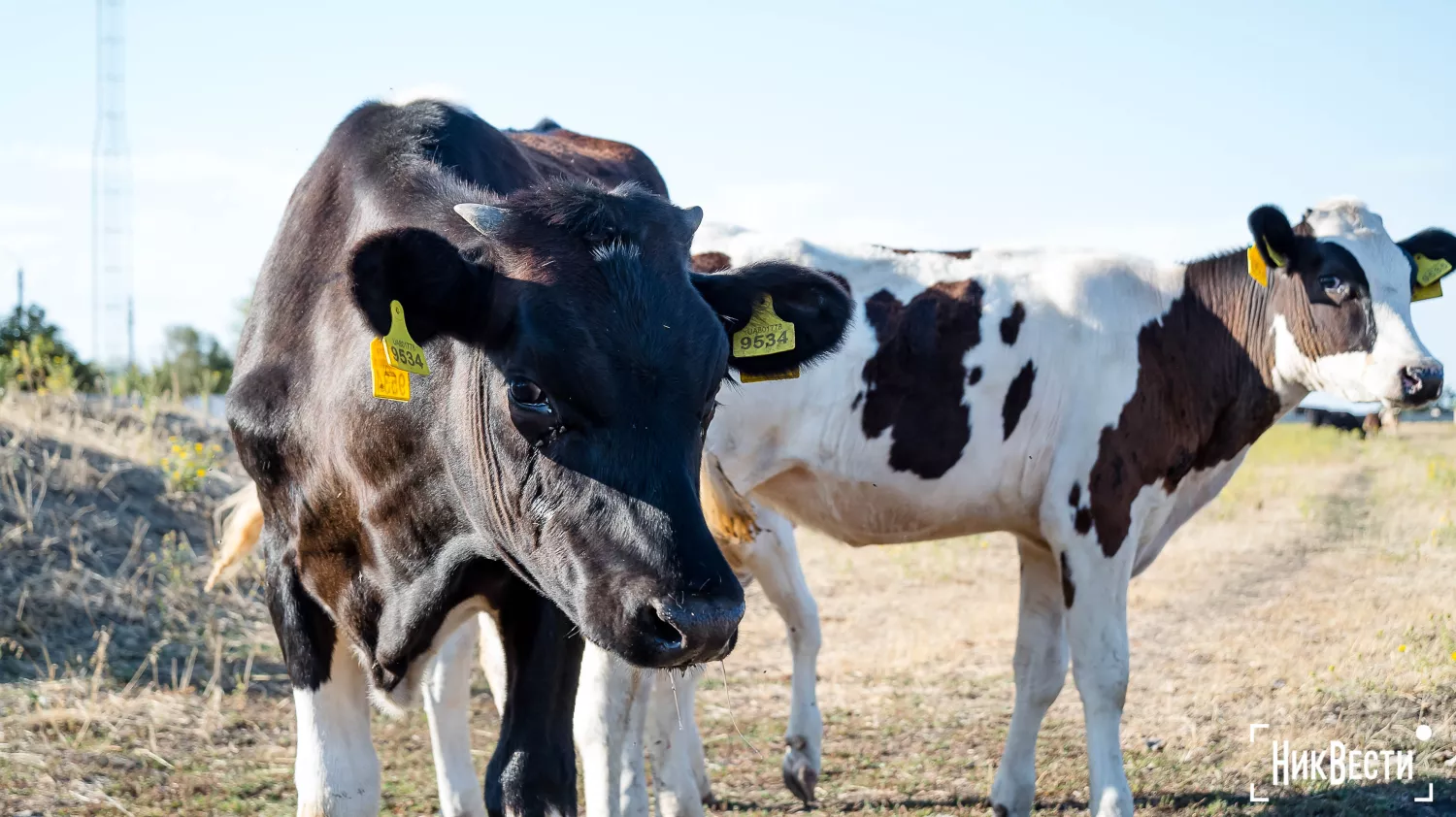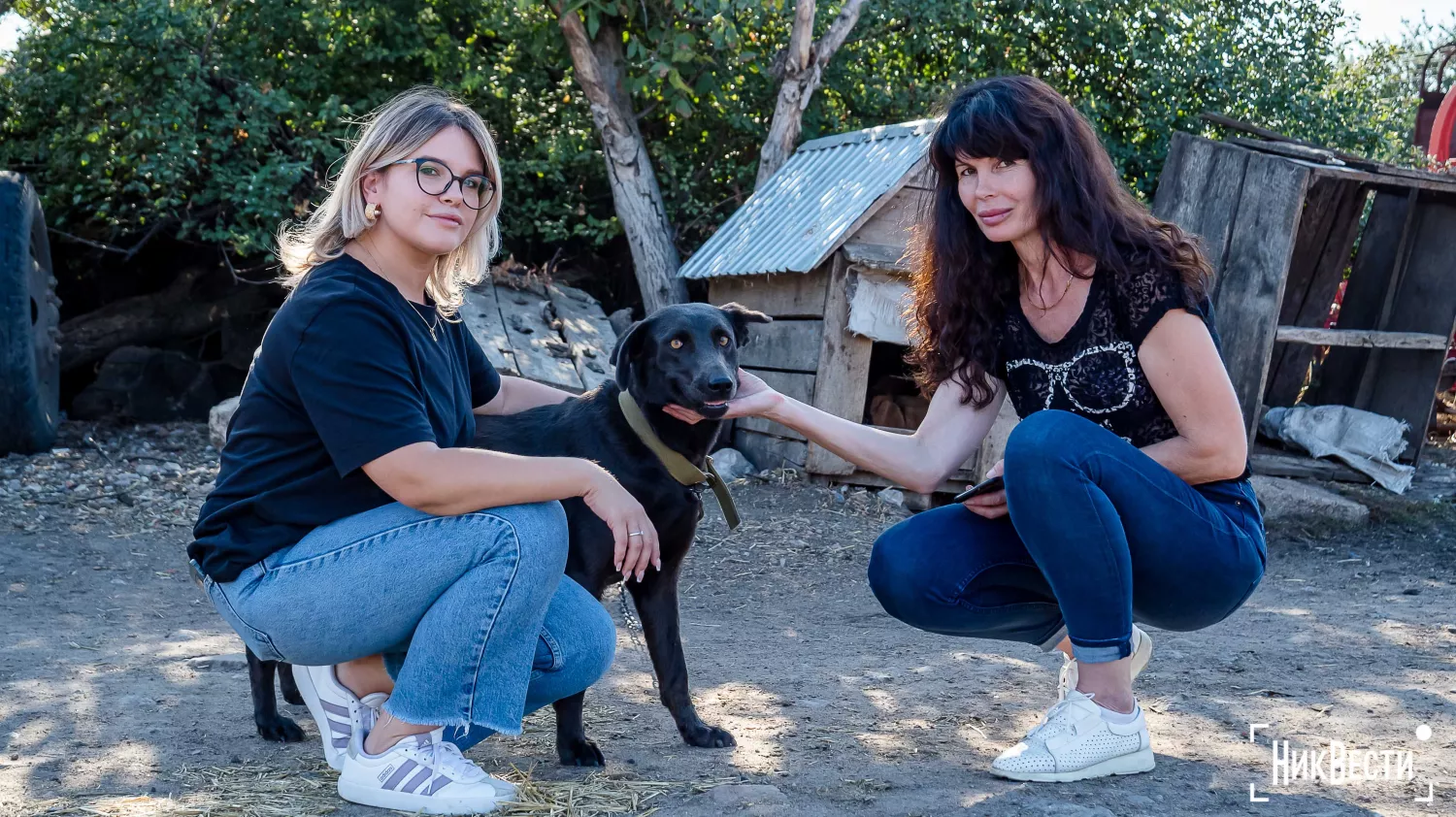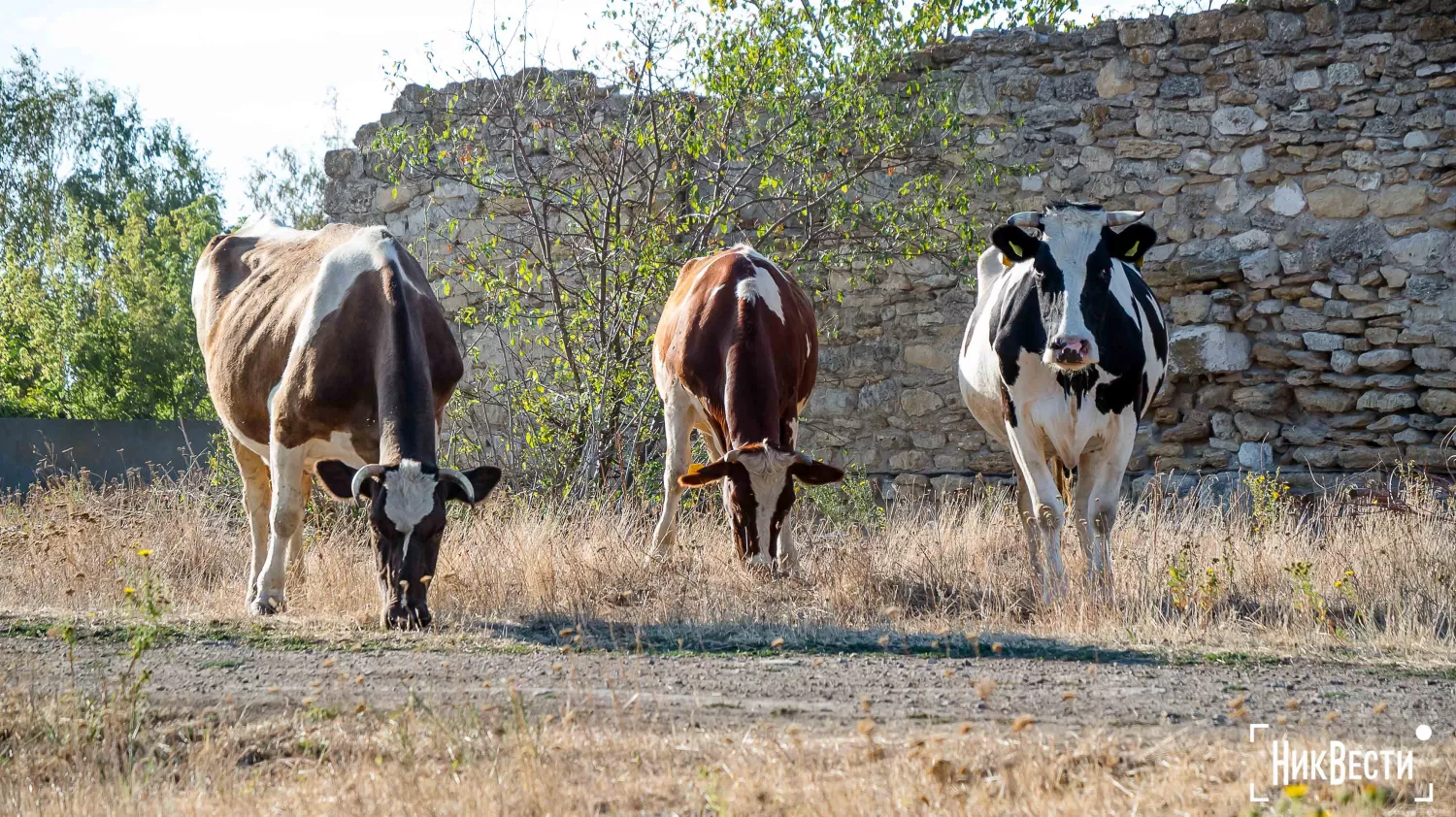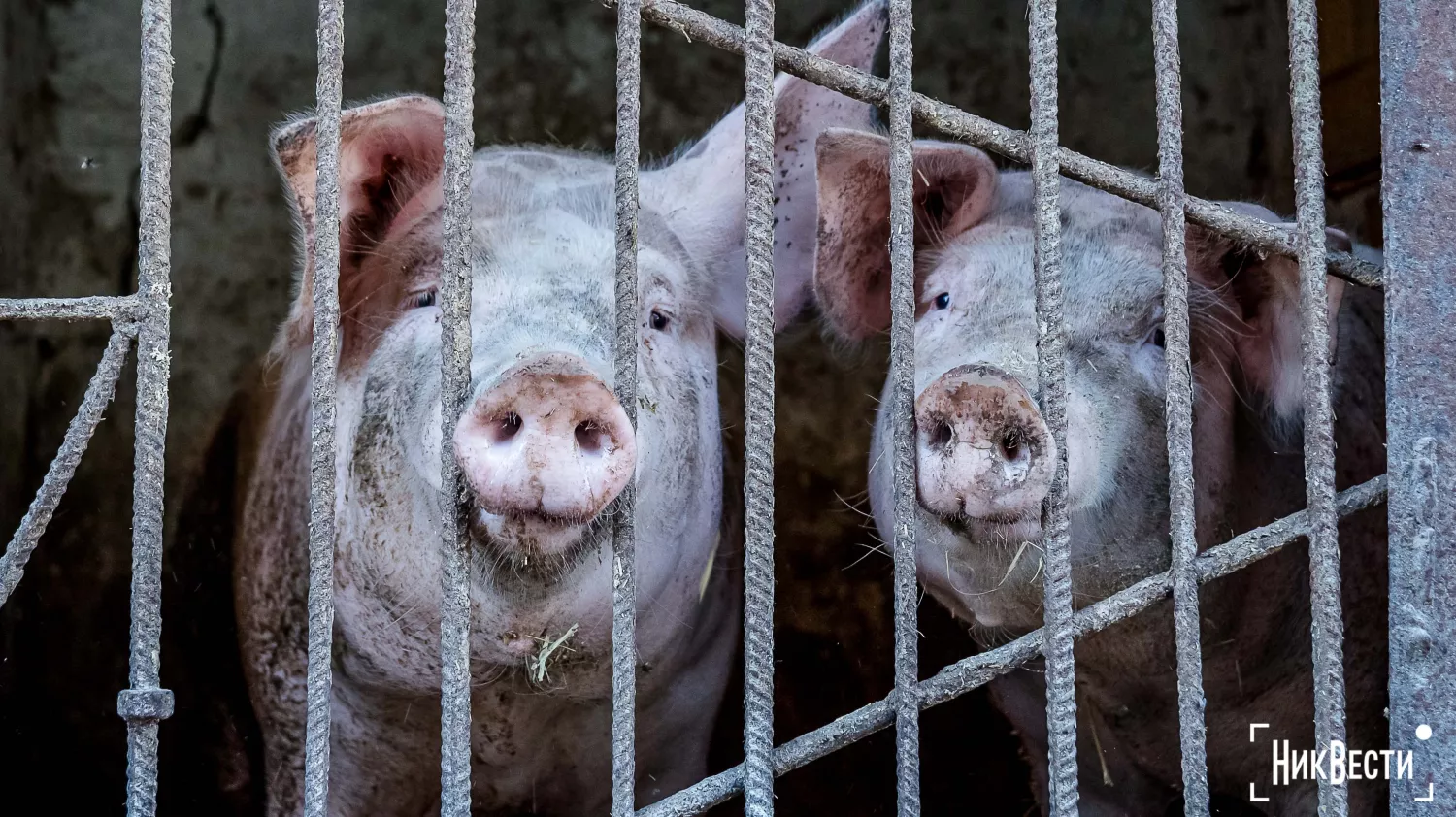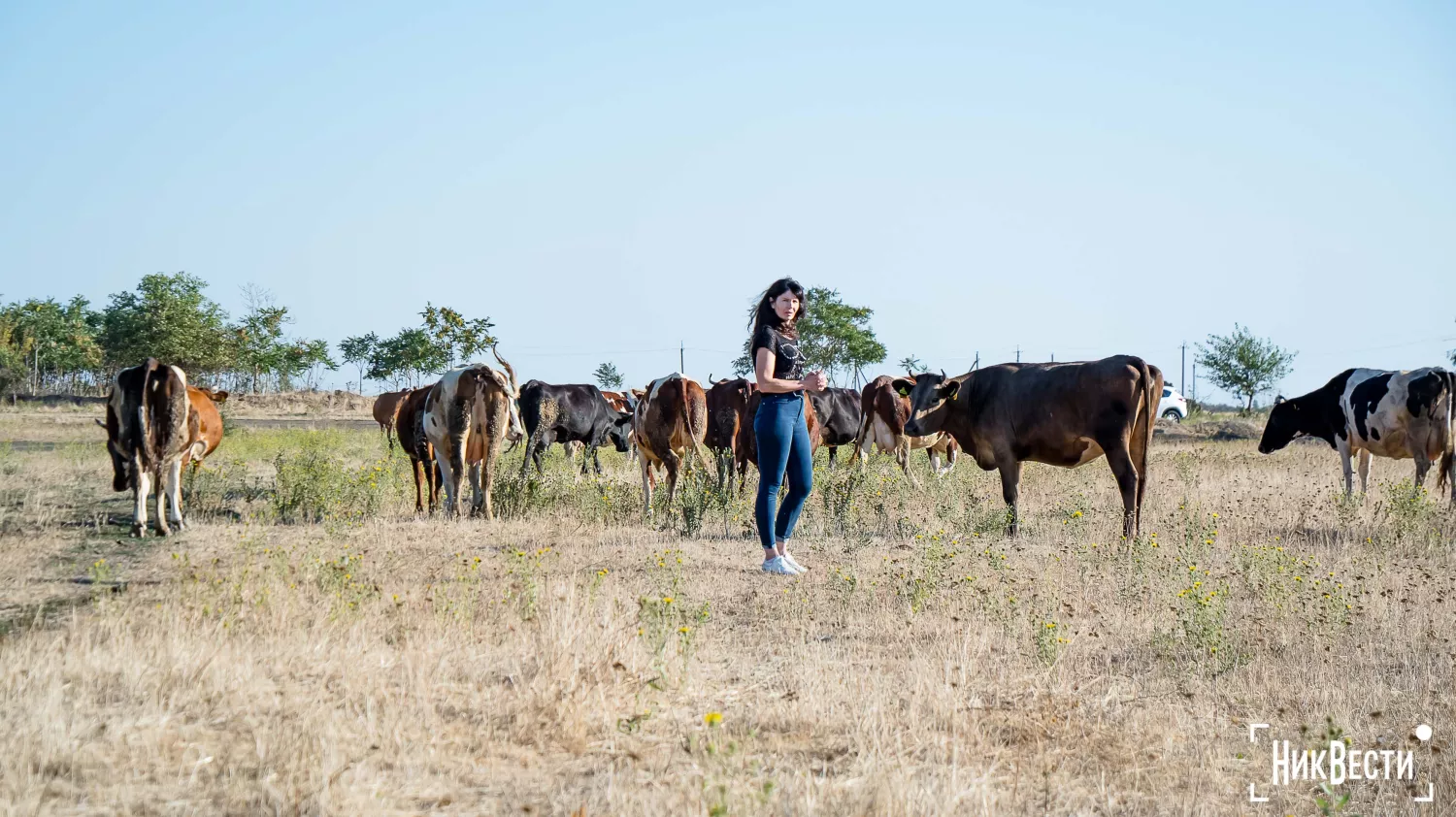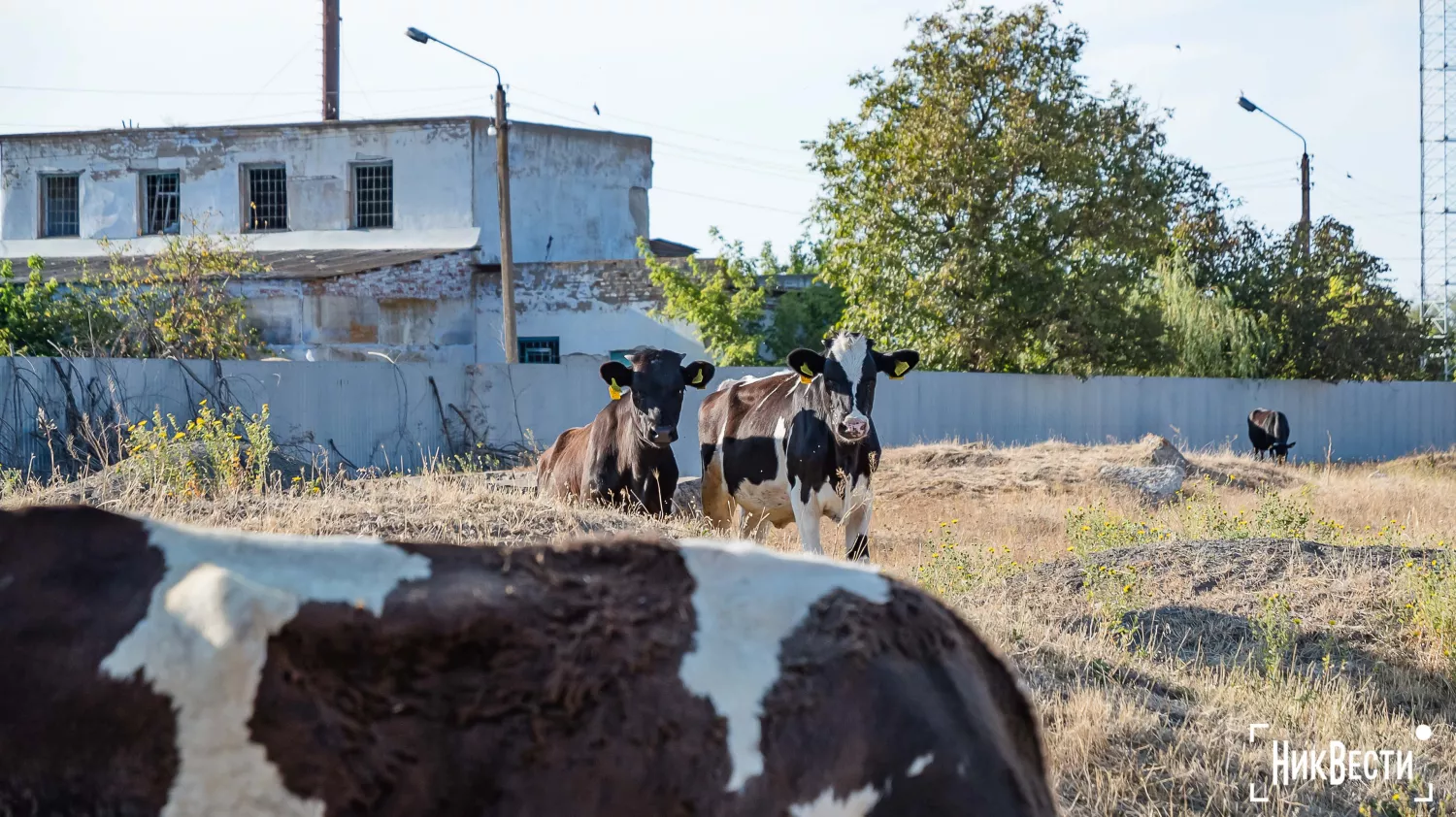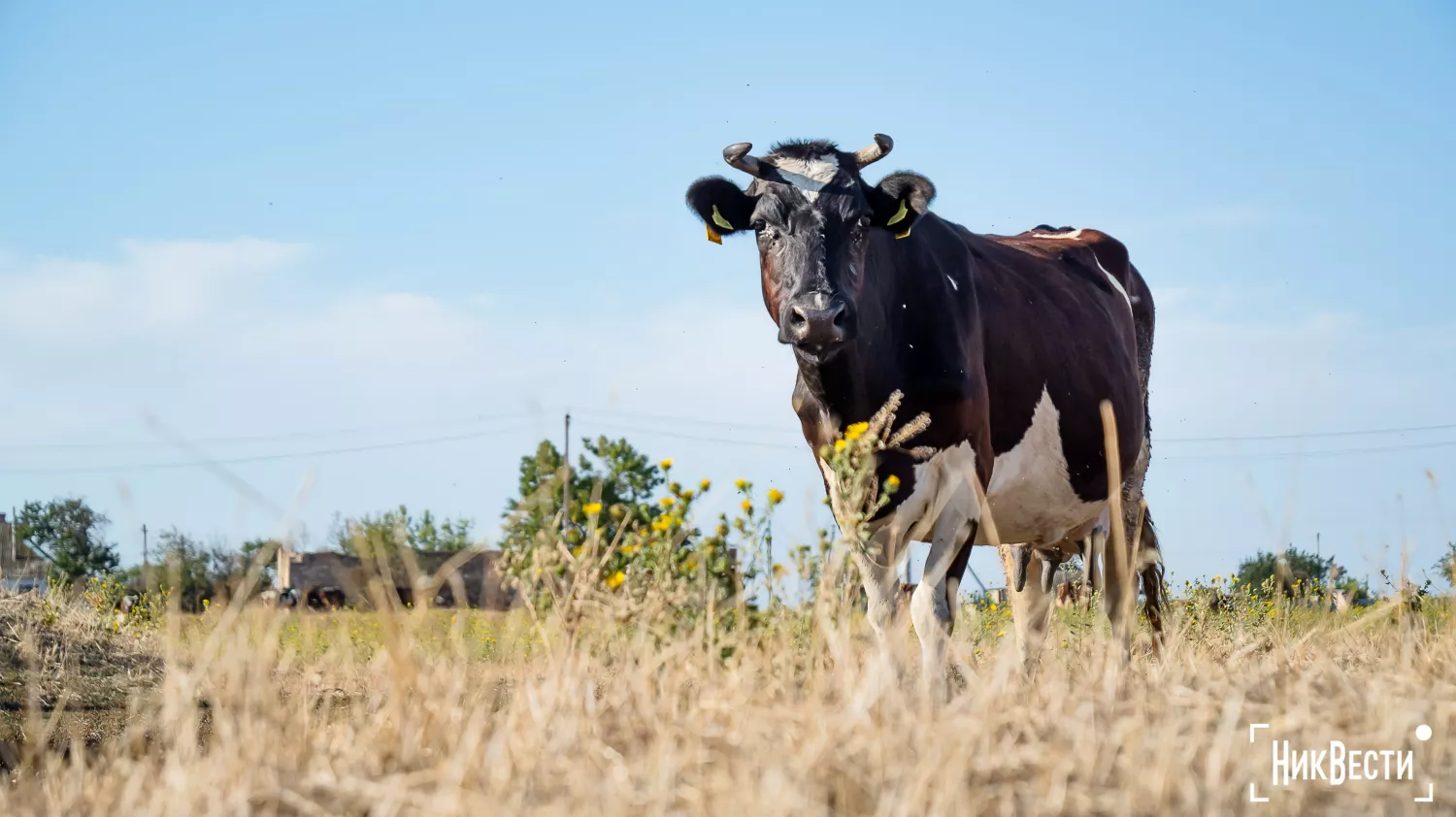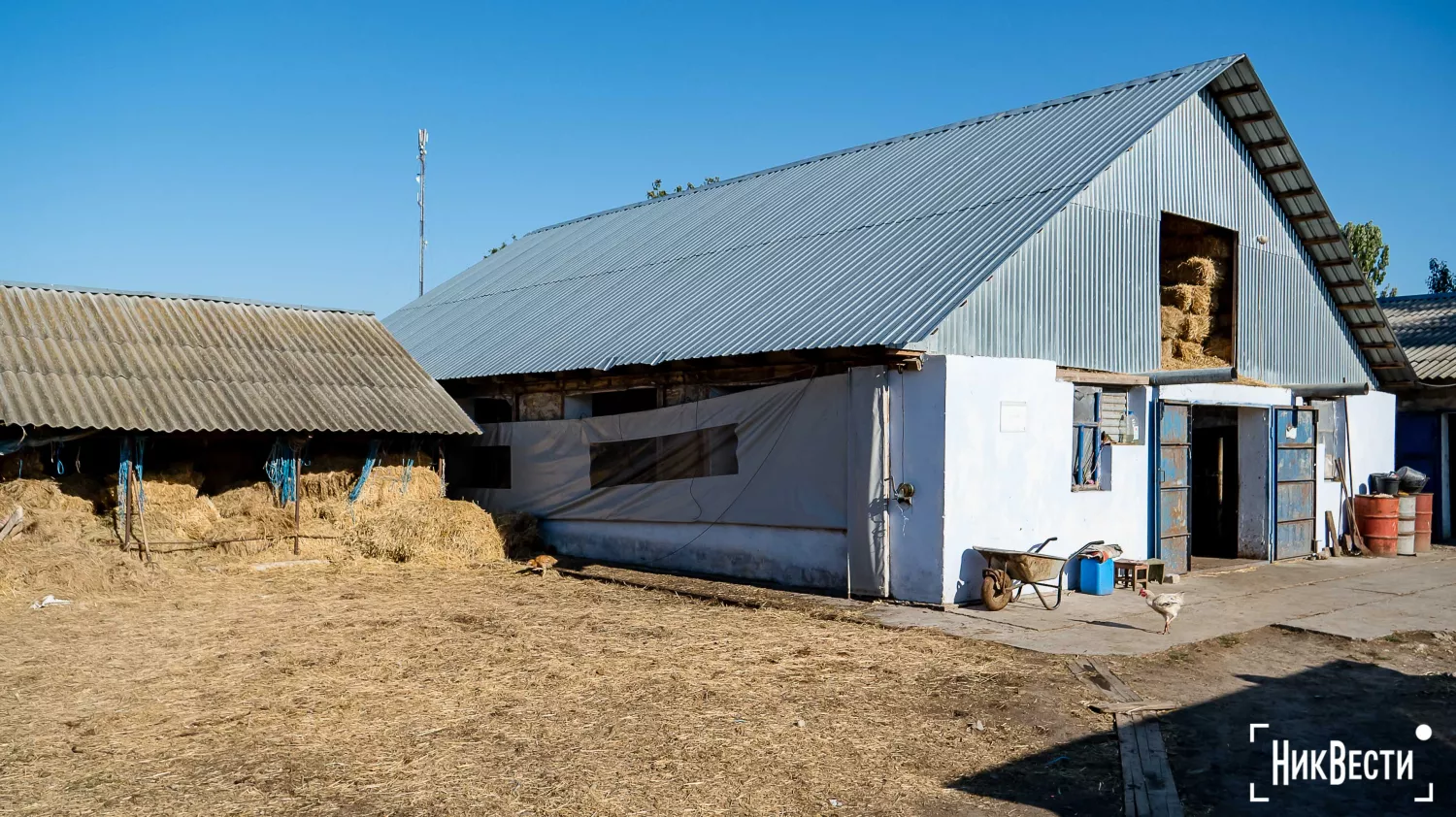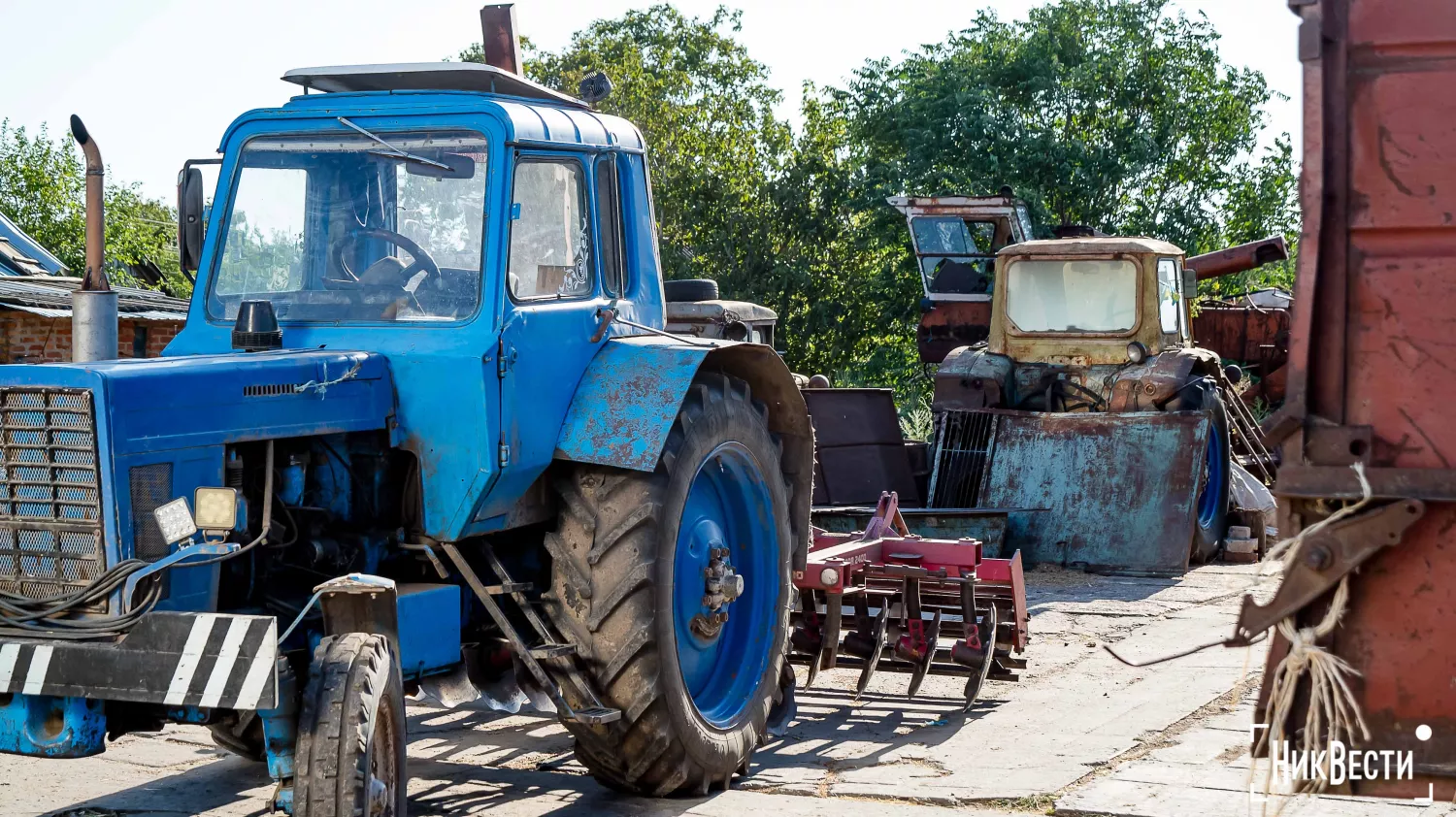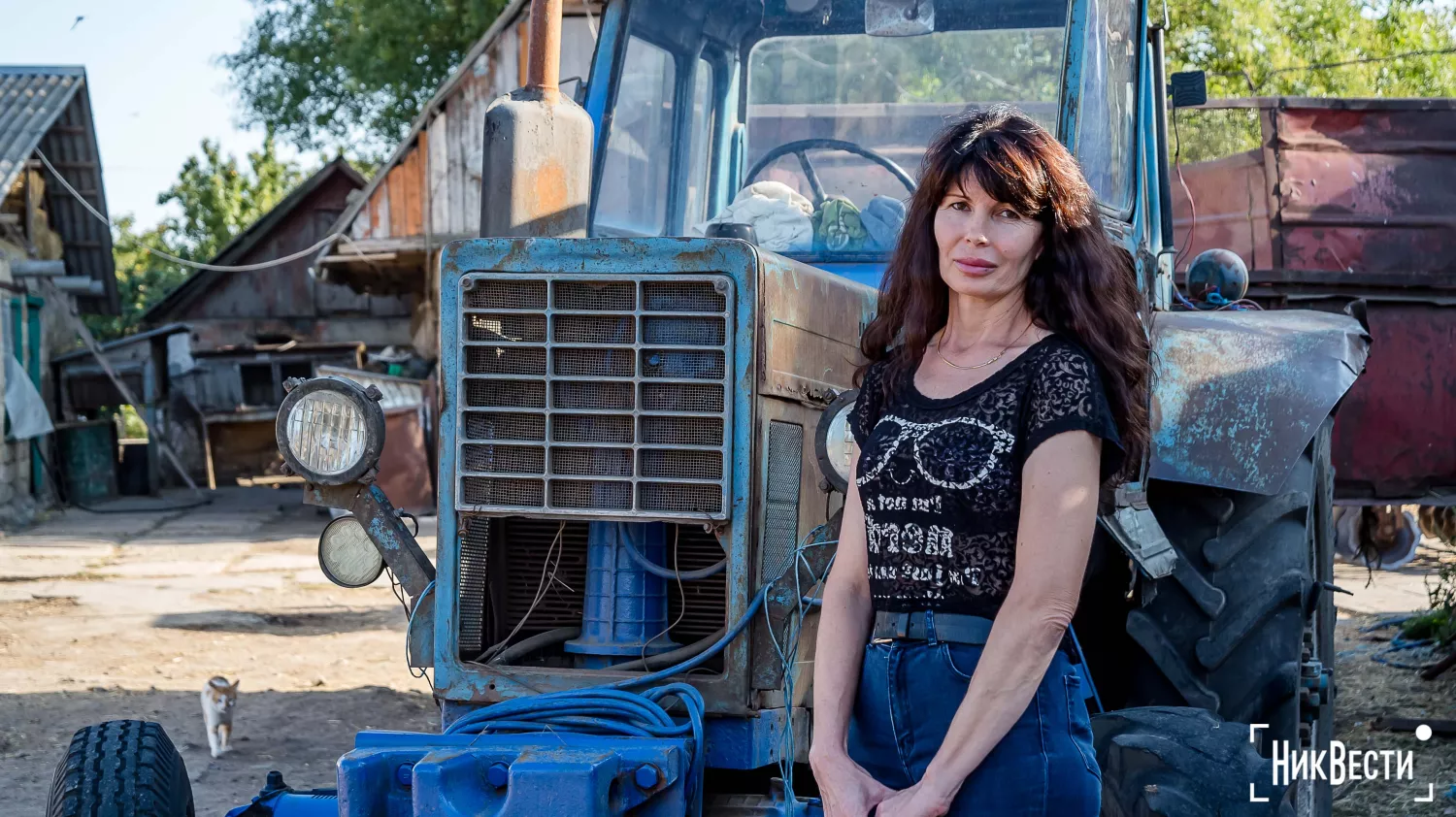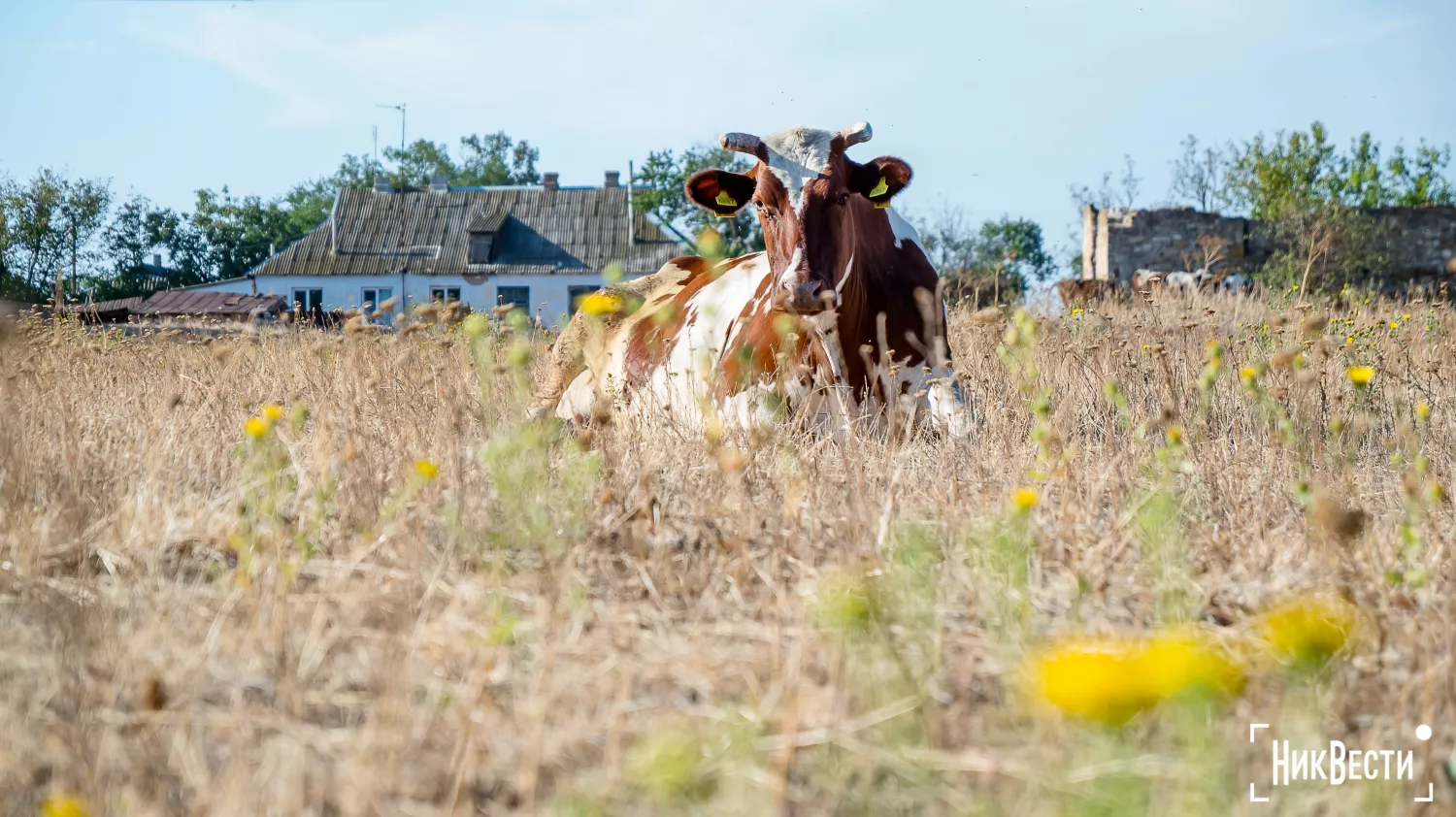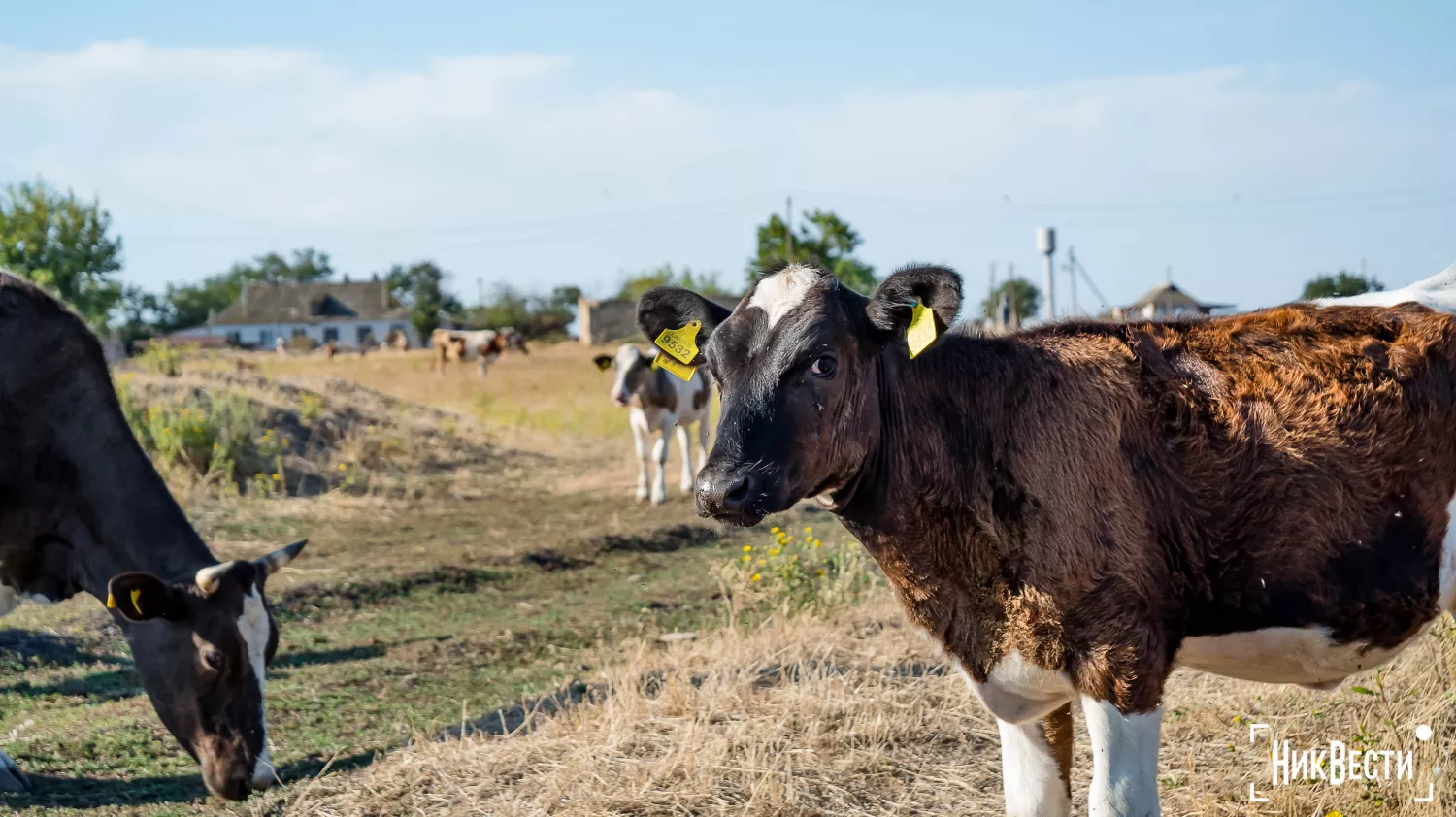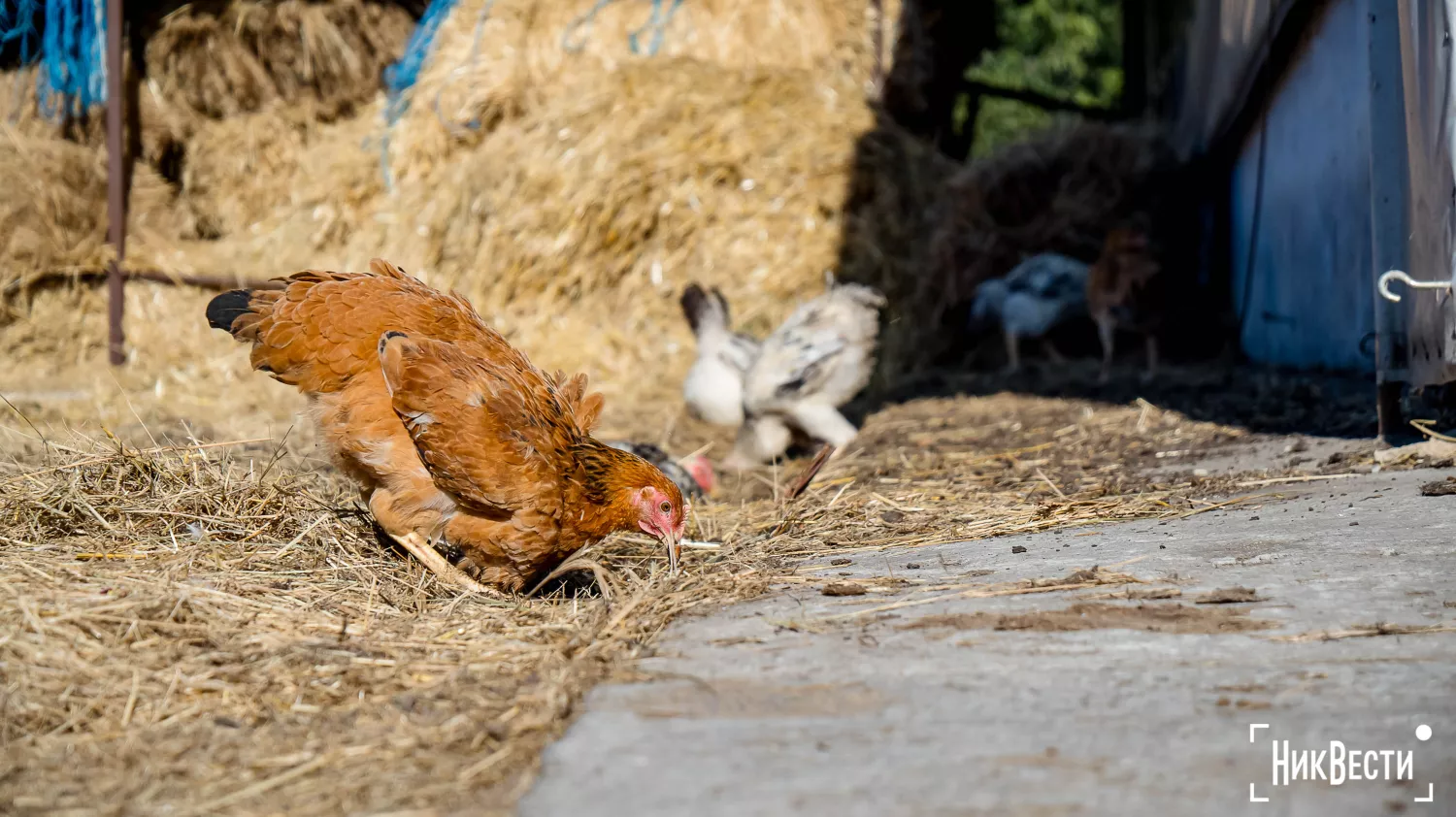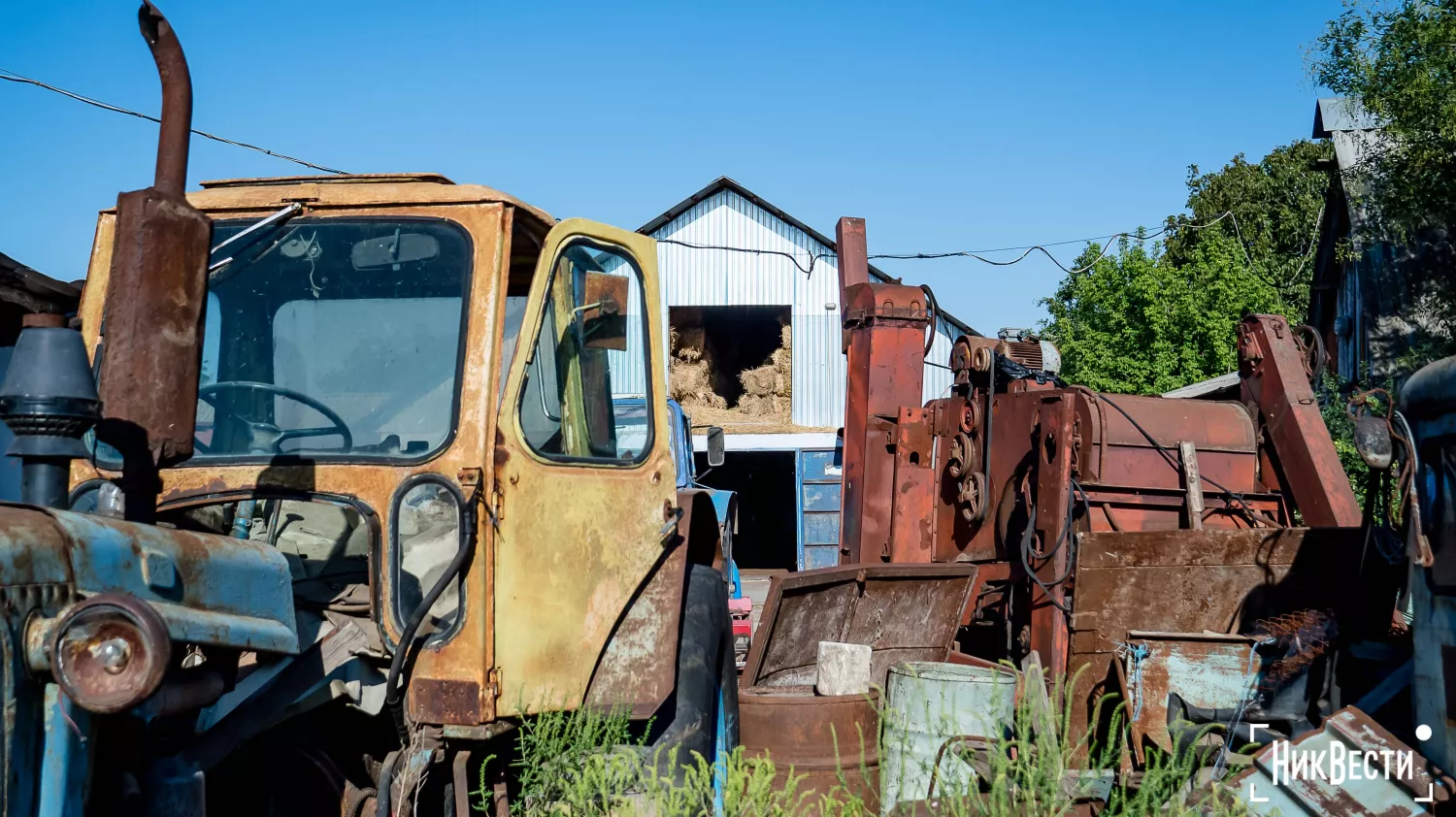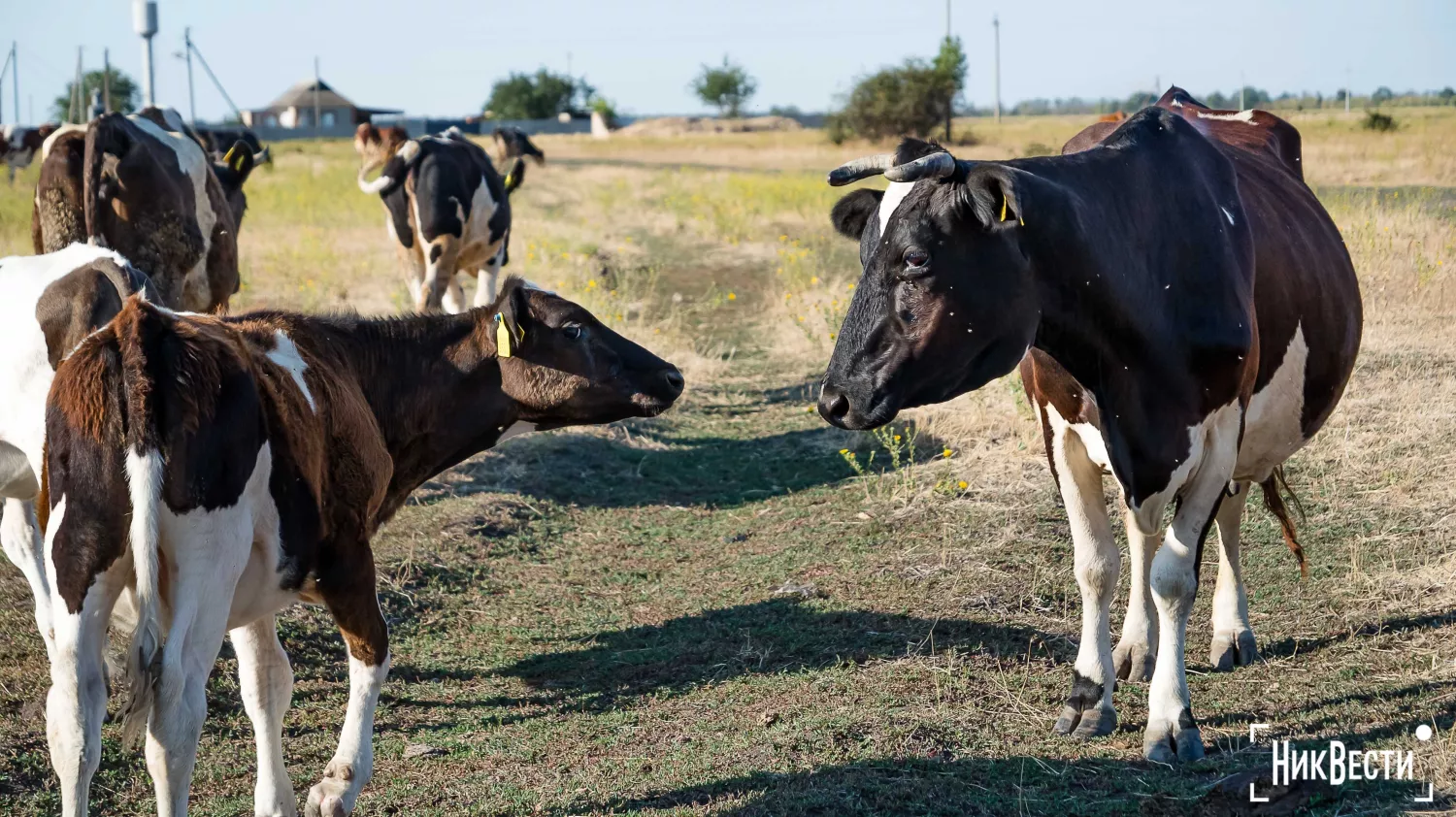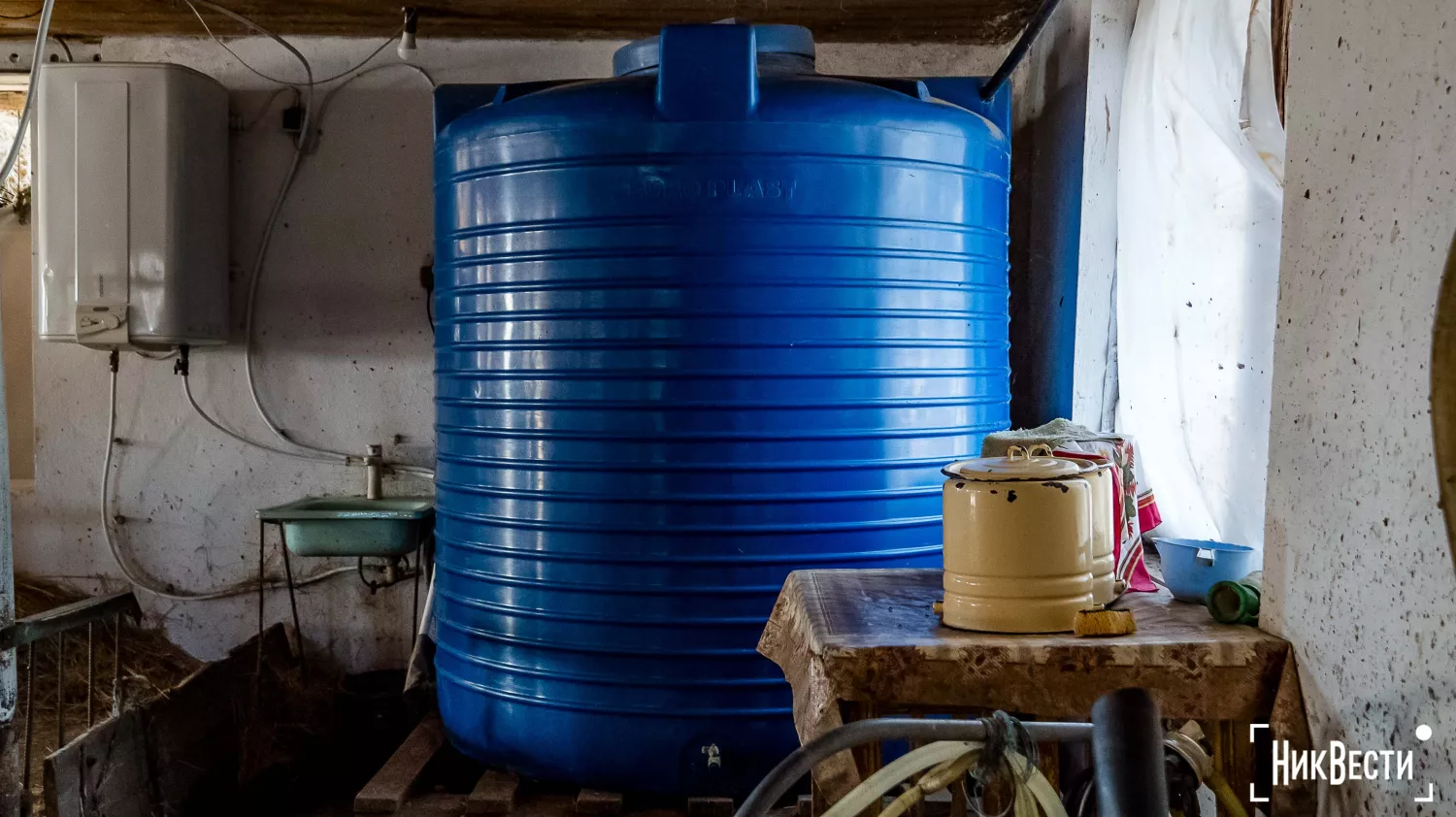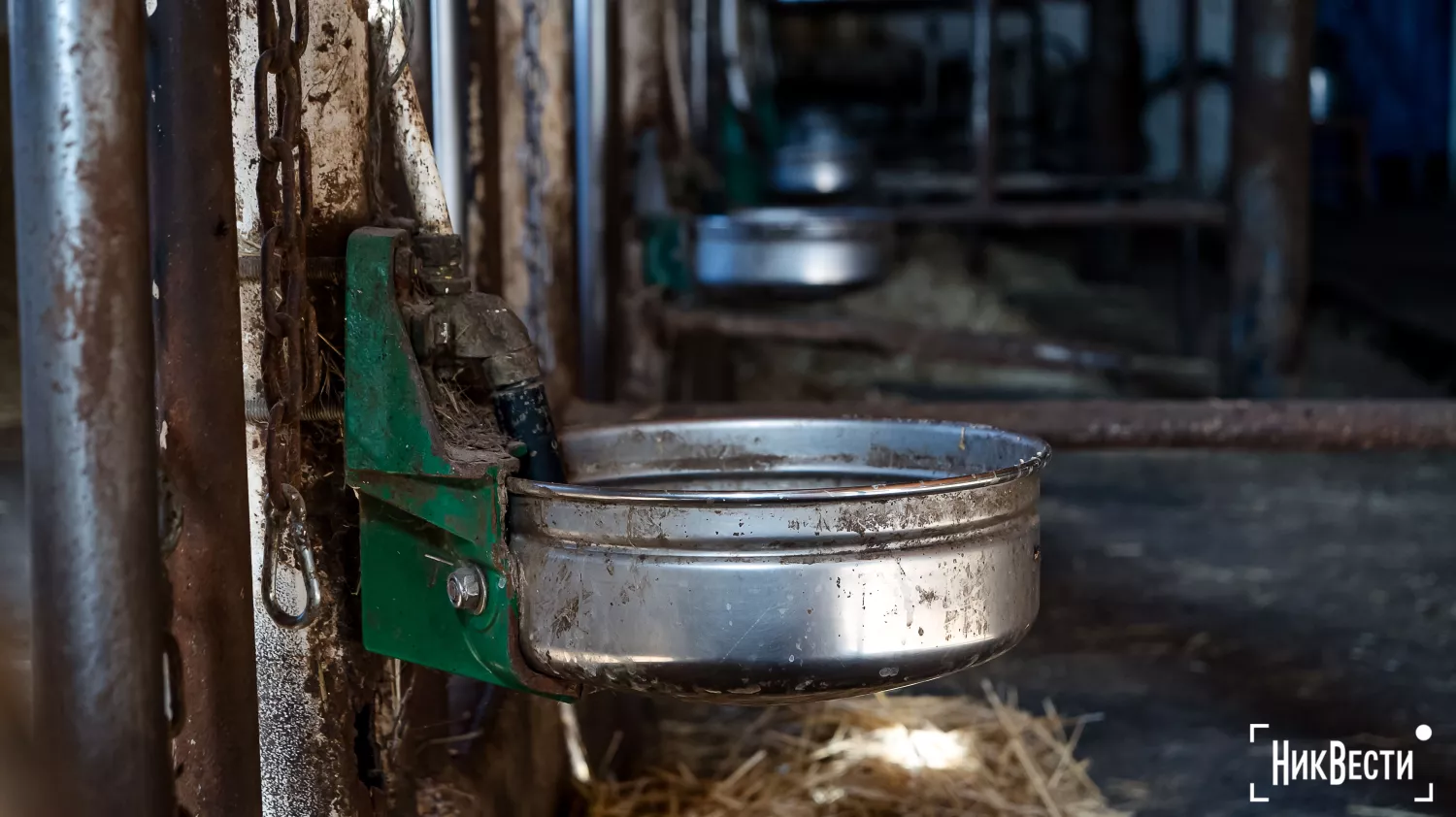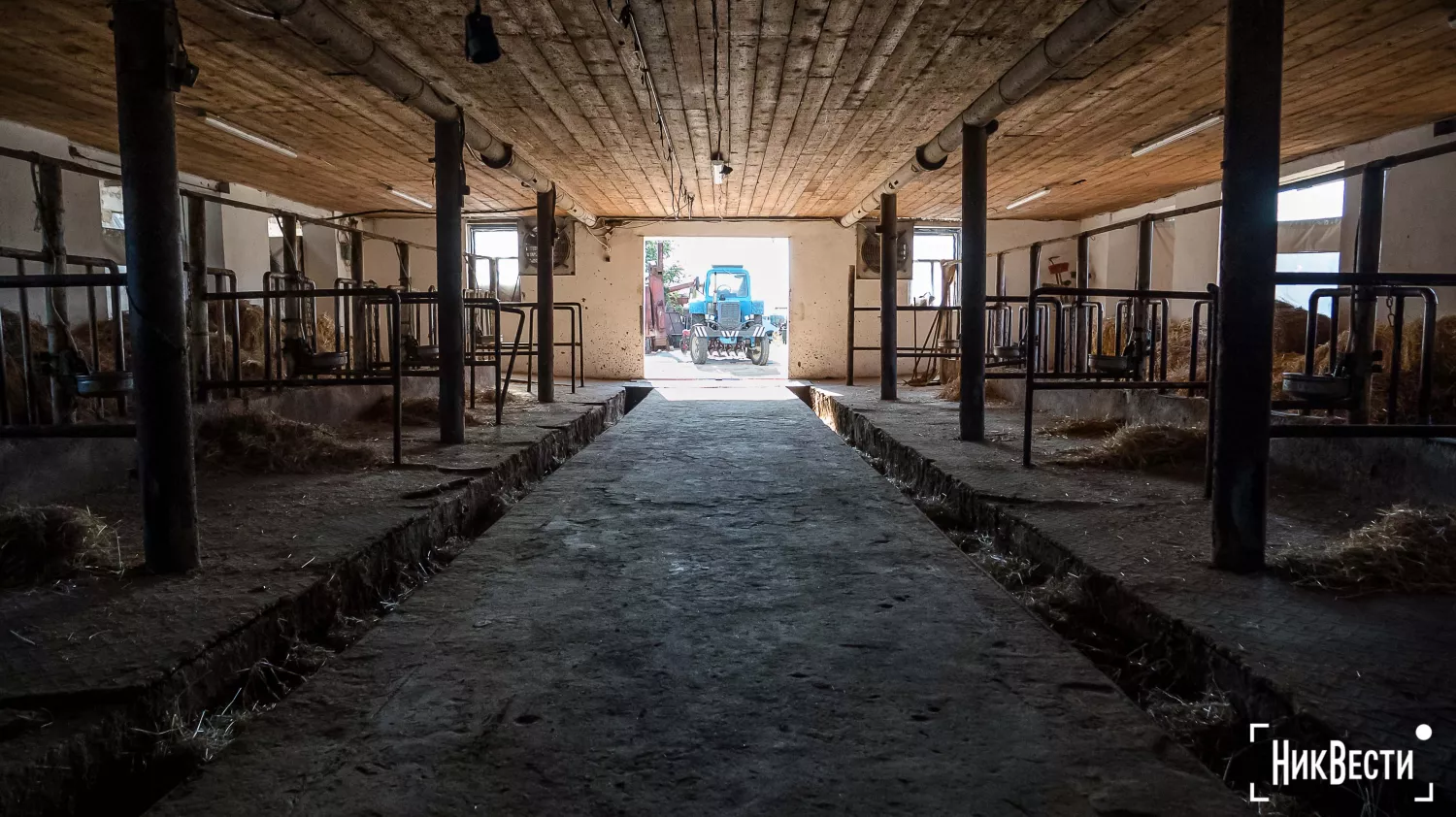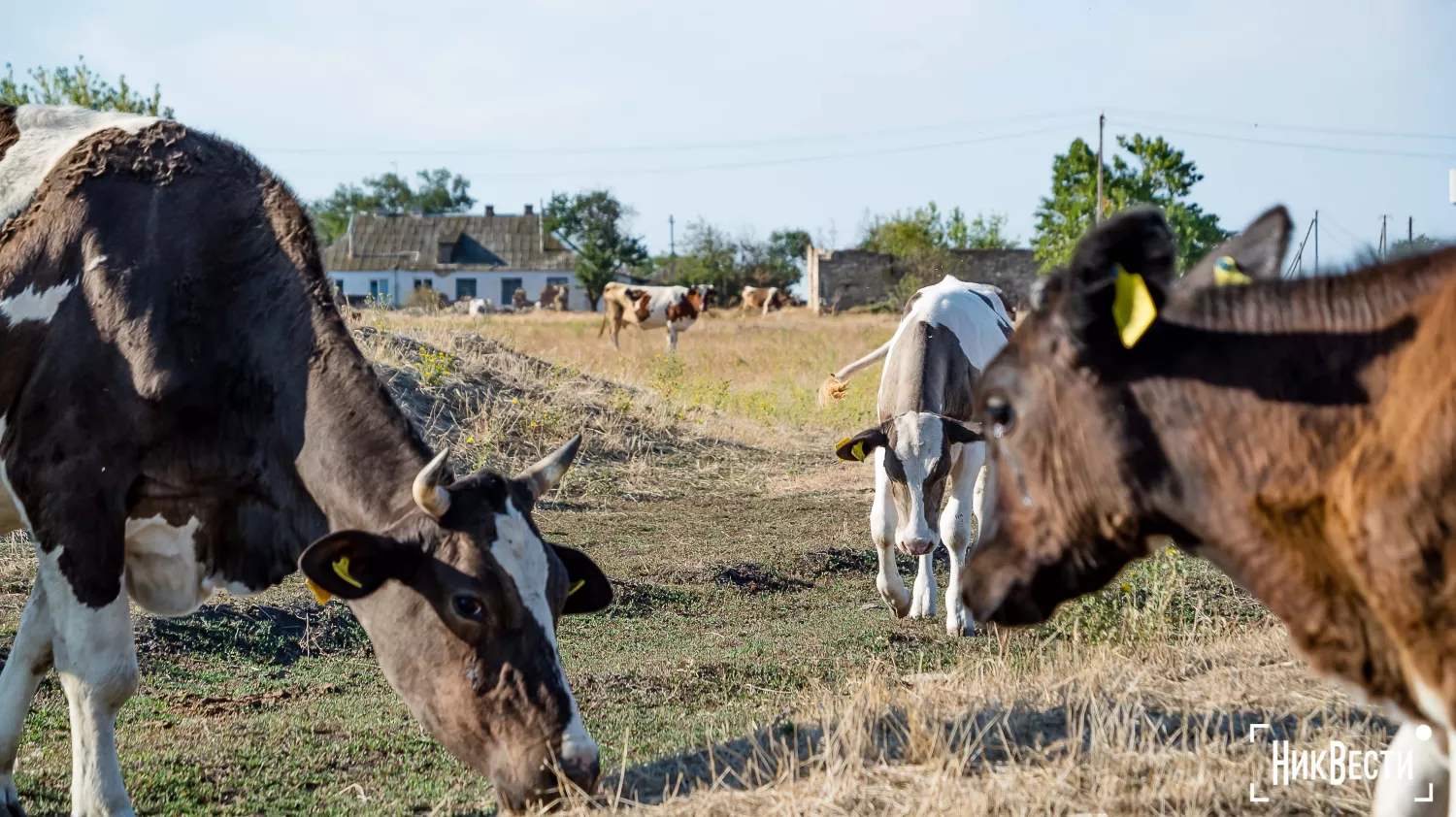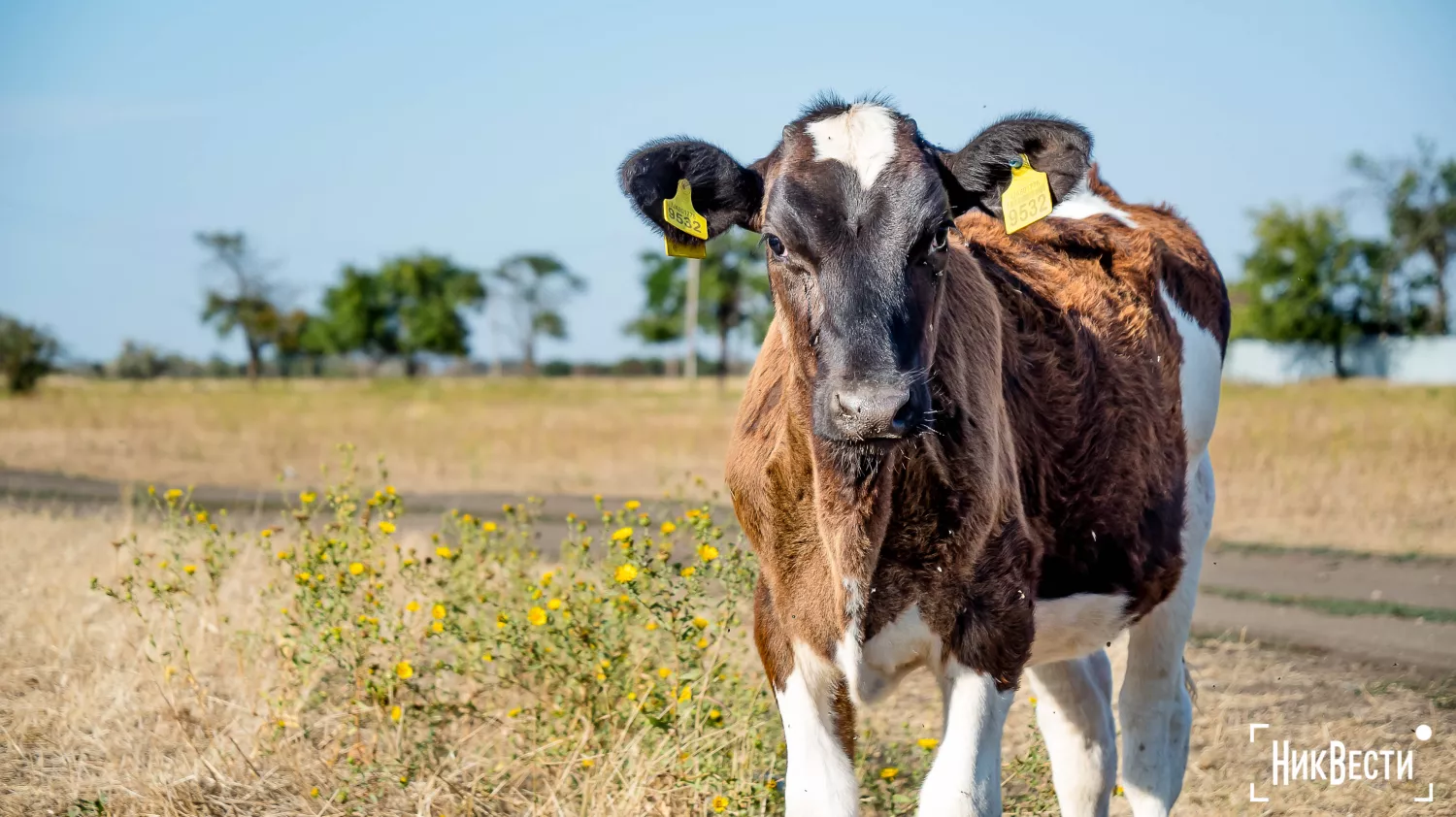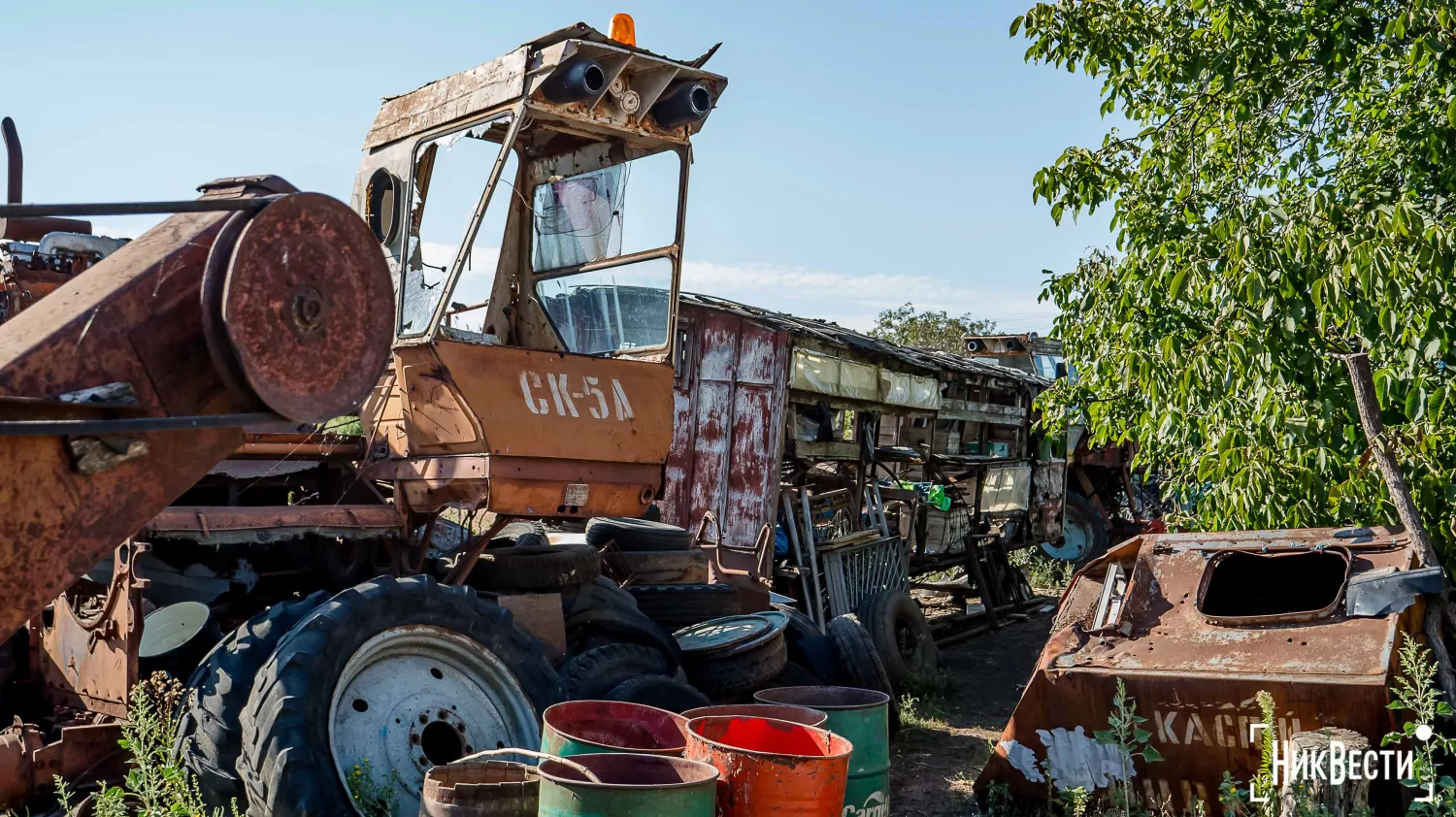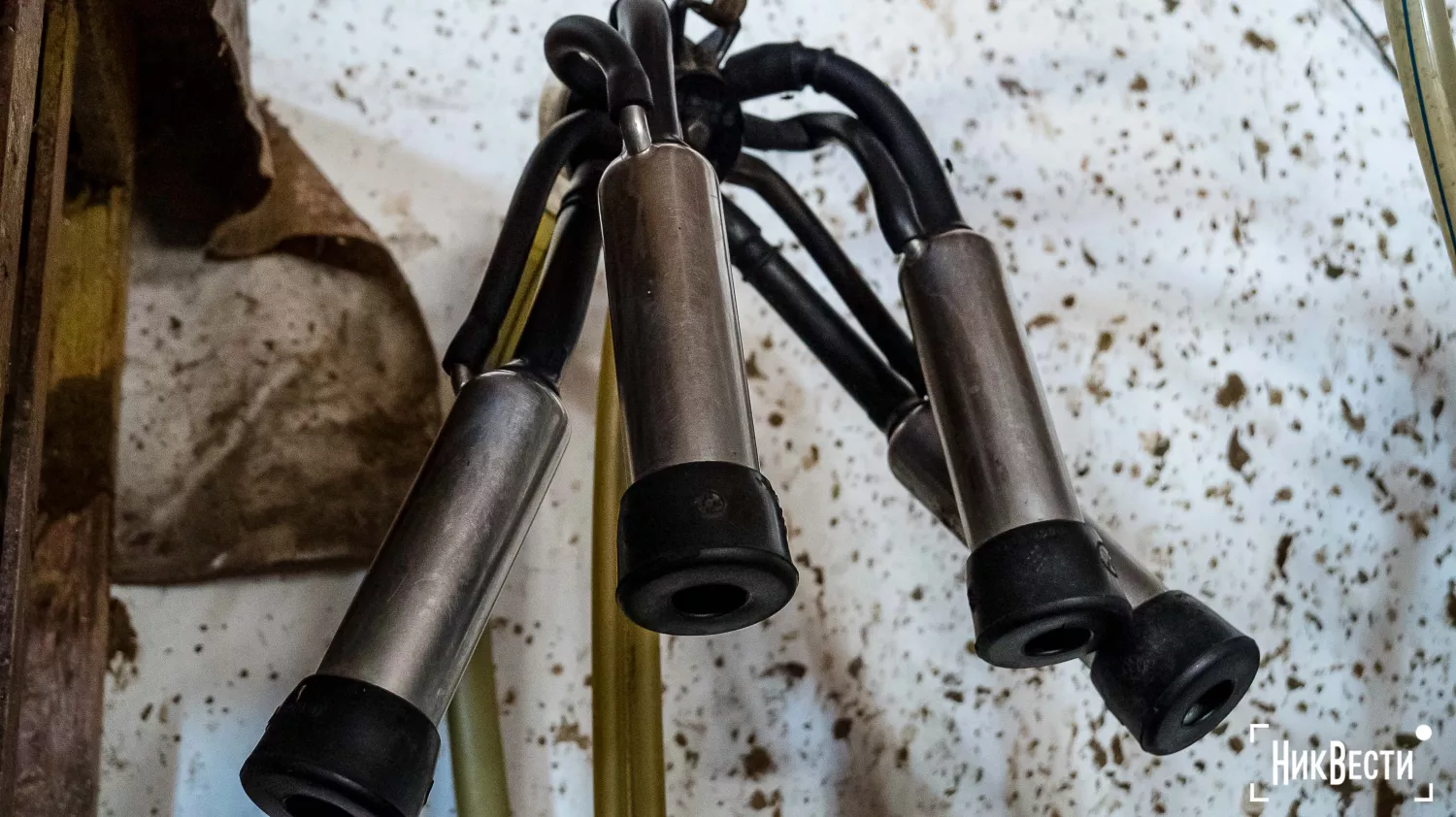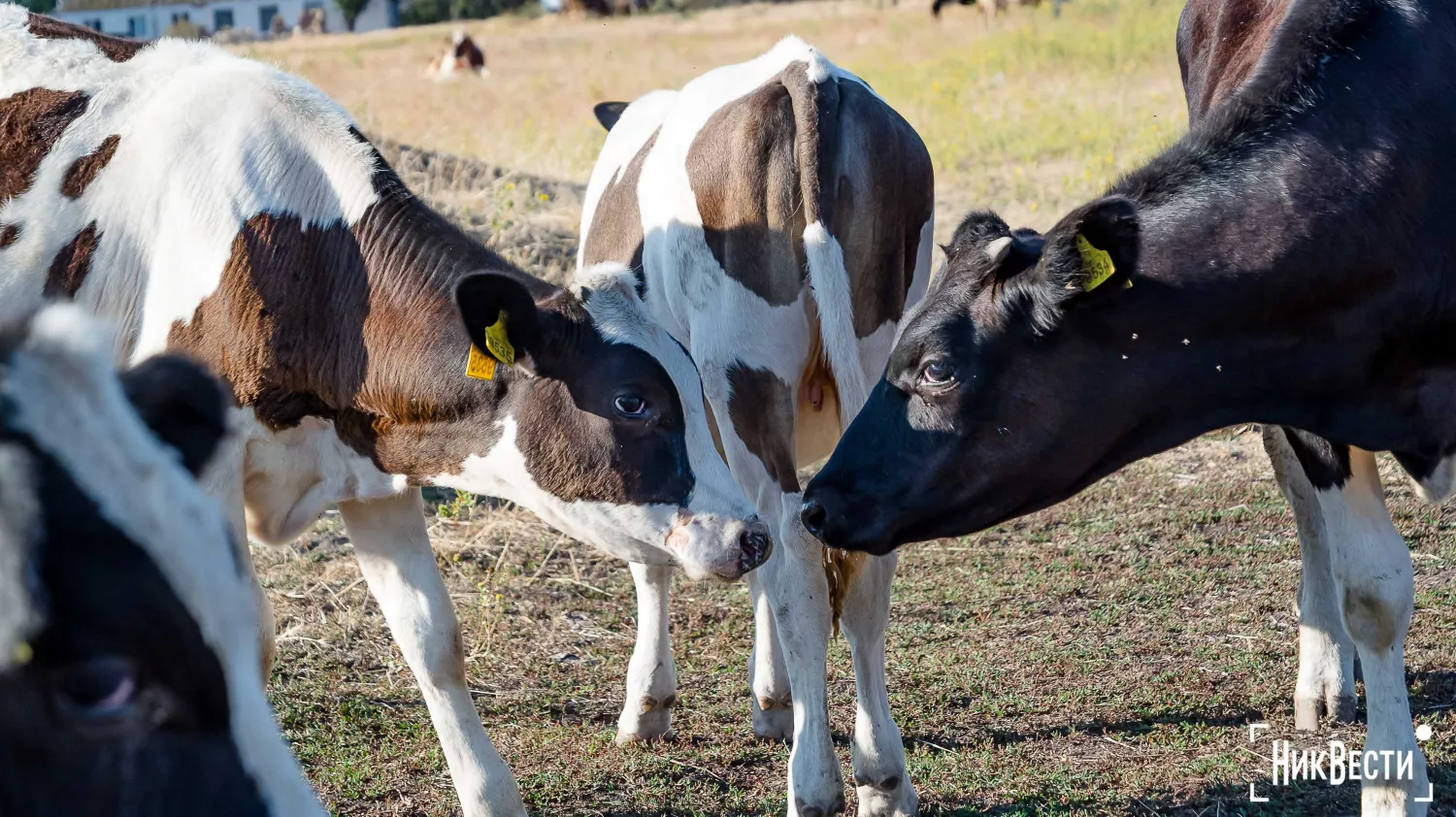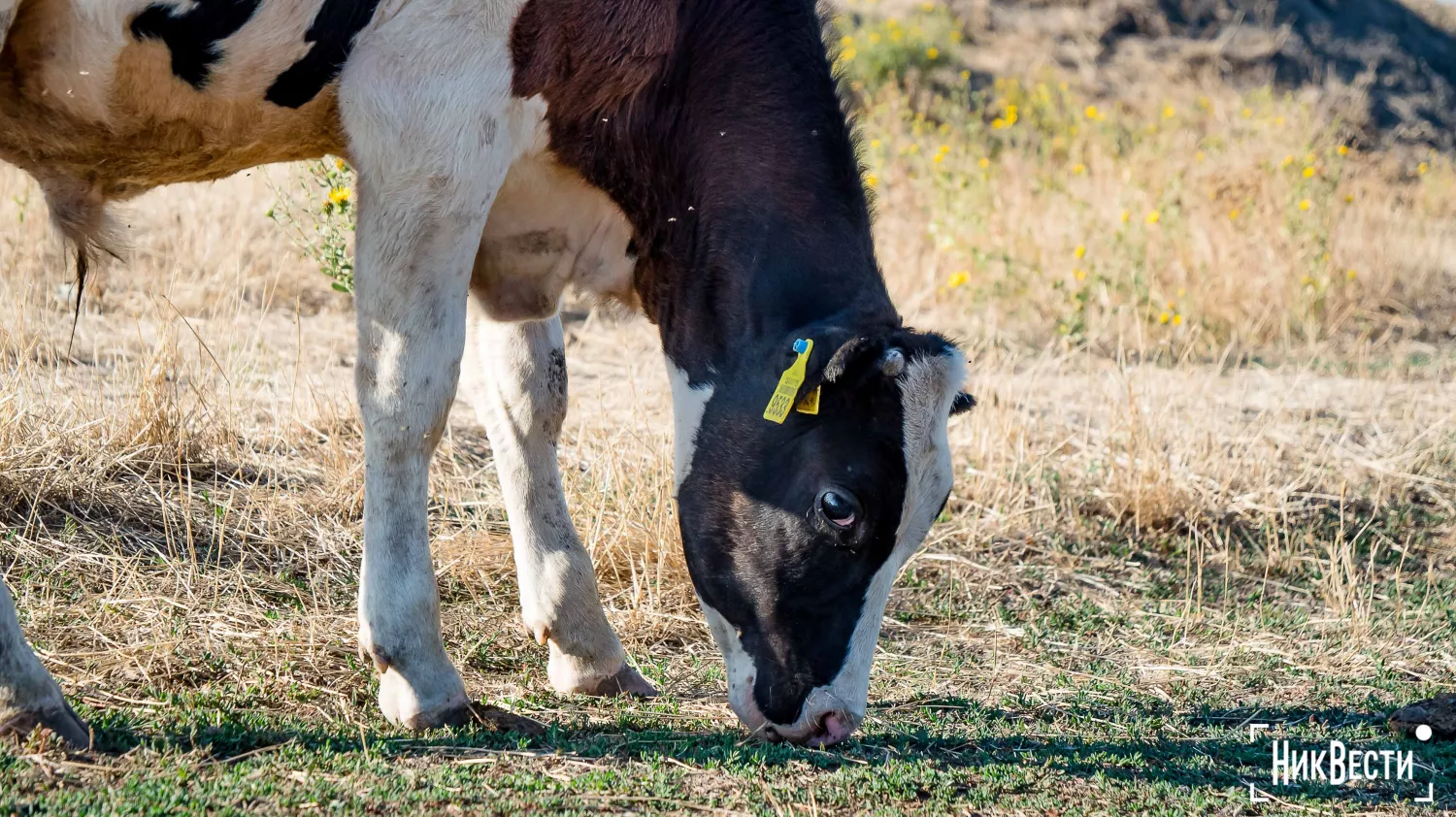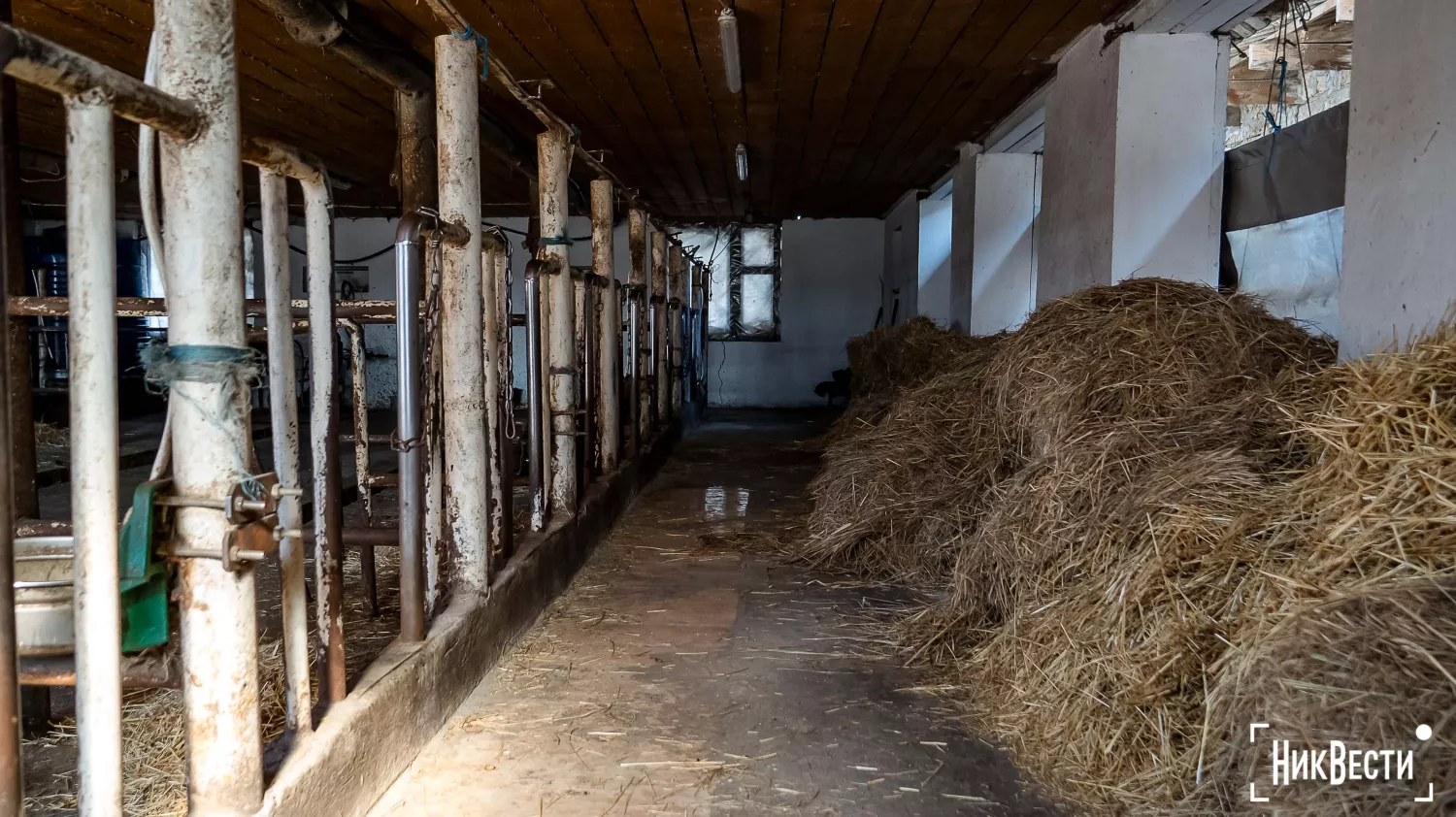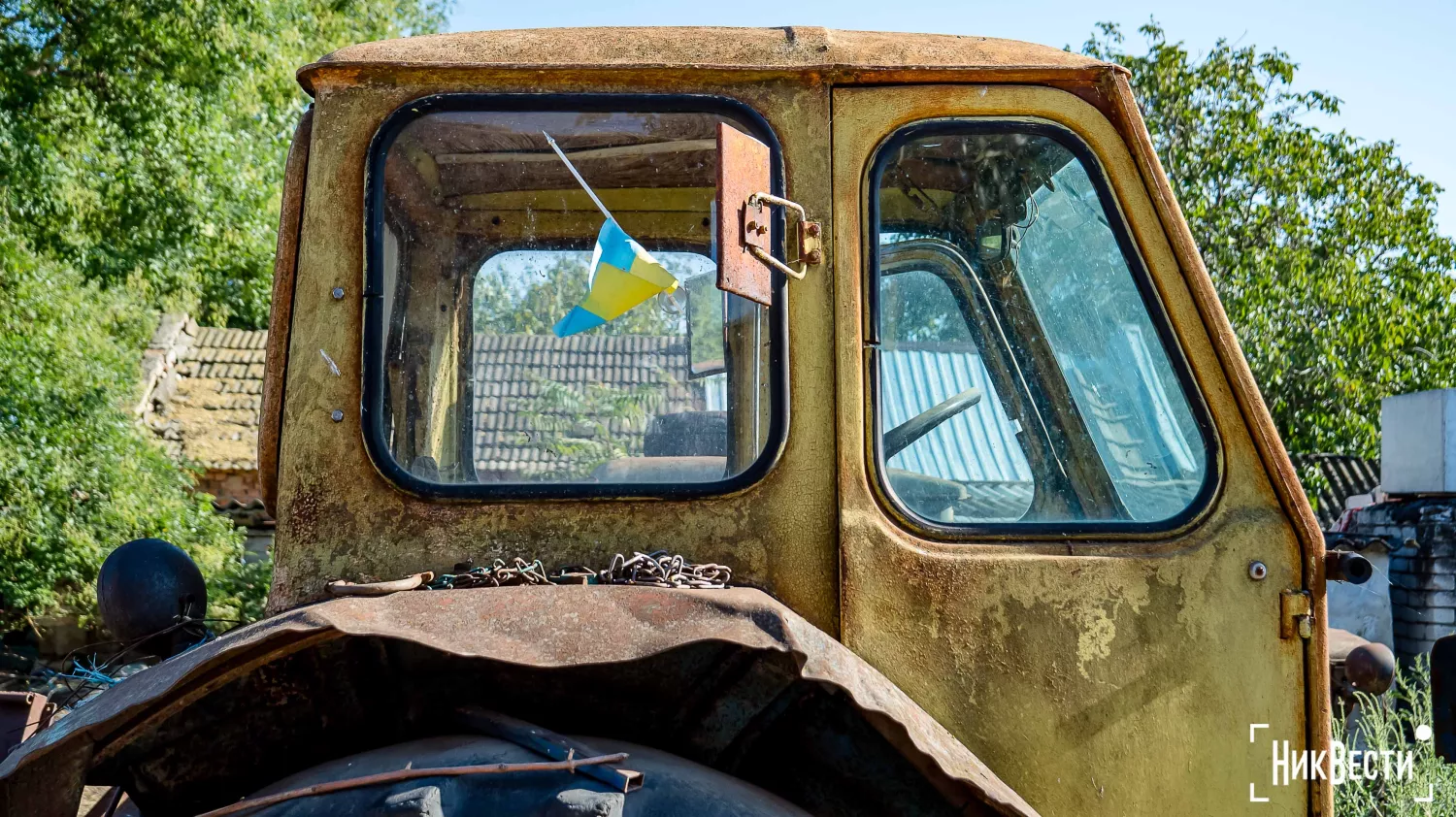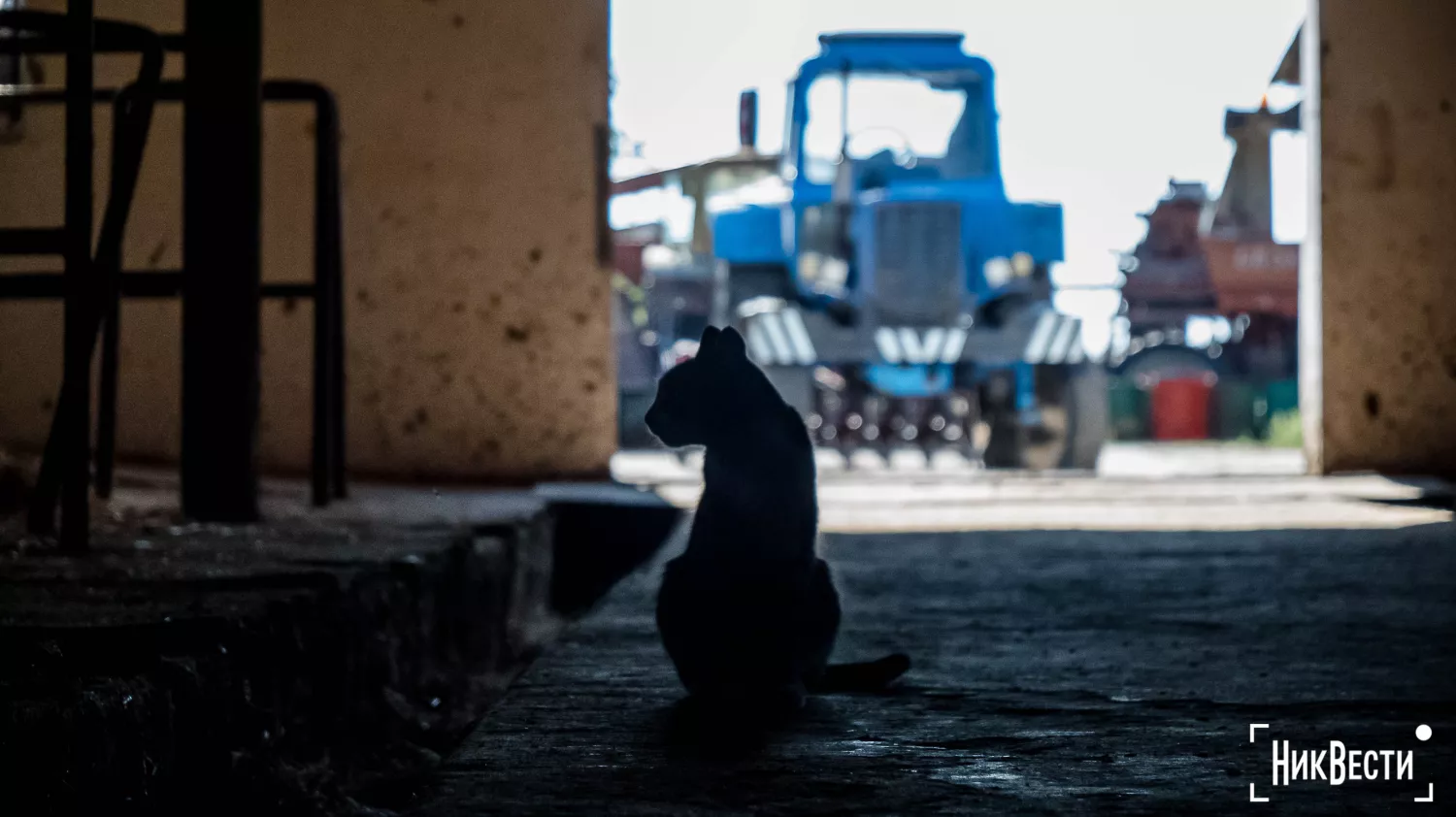Working on the last breath. How the war forces a farmer from the Mykolaiv region to fight for every cow in order not to lose her business
- Alina Kvitko
-
•
-
14:12, 31 August, 2024
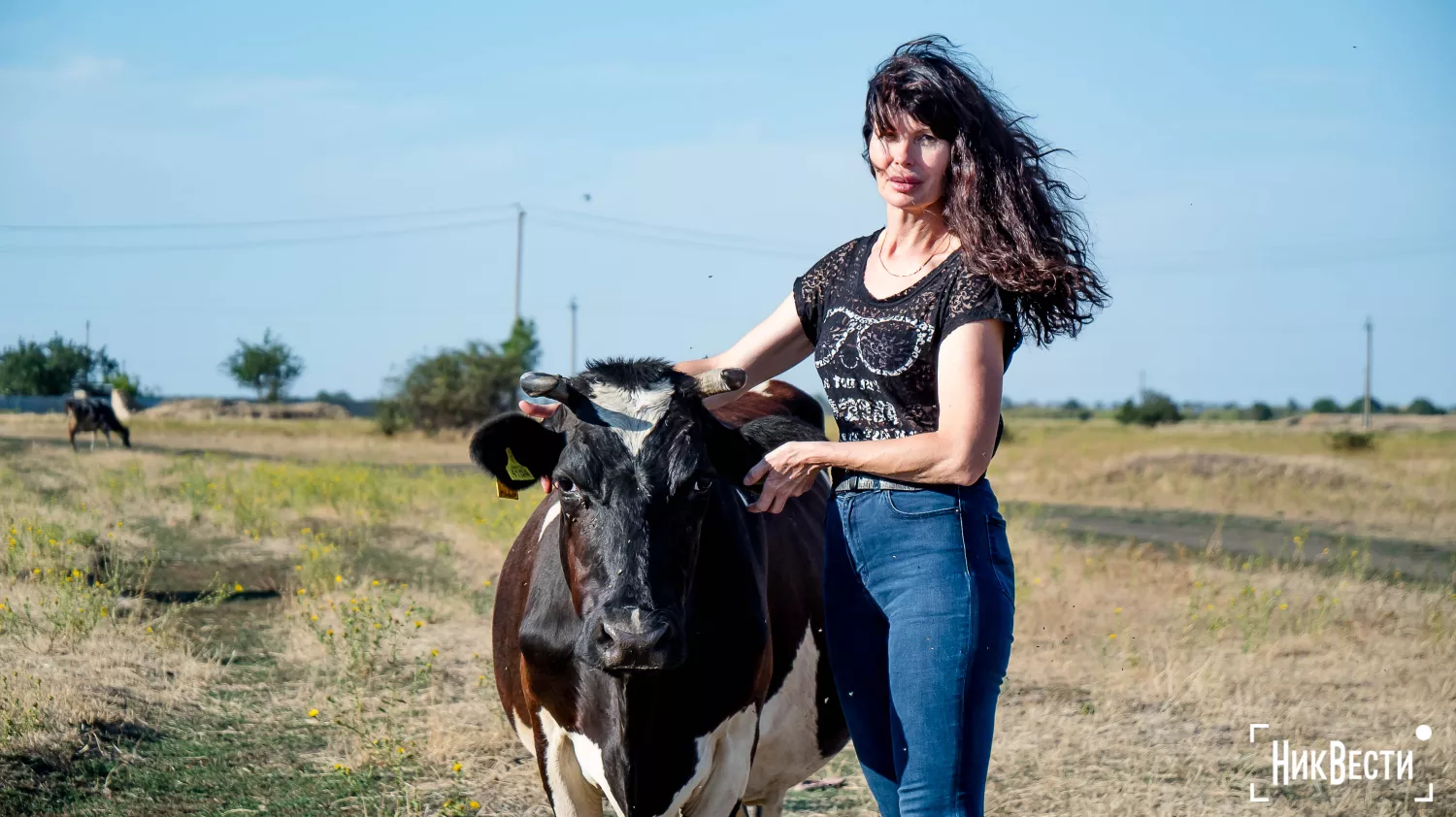 Lyubov Khodarina is the owner of a farm in the village of Lotskyne. Photo: Serhii Ovcharyshyn, NikVesti
Lyubov Khodarina is the owner of a farm in the village of Lotskyne. Photo: Serhii Ovcharyshyn, NikVestiMore than 10 years ago, the Khodarin family opened a farm in the village of Lotskine, in the Bashtanka district. Over time, a farm with a few cows turned into a large farm.
However, due to the full-scale war, the farm did not stop developing, but was on the verge of existence. Today, the economy is struggling with numerous challenges: problems with electricity supply, lack of fodder, a decrease in the number of animals and financial difficulties.
Read about how the war affected the work of the farm, about the struggle for the preservation of the farm and prospects for the future, in the article NikVesti.
Origin and development of the farm
On the farm in the village of Lotskyne, the day begins with the first rays of the sun. At five in the morning, when there is still silence around, Liubov starts milking the cows. Work continues until seven in the morning.
After that, the cows go for a walk — they graze and rest until the evening.
The Khodarins' farm, located on an area of about 200 square meters, gives the impression of a well-organized, albeit compact farm. This is not a huge industrial enterprise, but at the same time it is not a small private yard.
There are no large gardens or decorative flower beds on the farm, but there are several beds where vegetables are grown for the family's own needs, and there are also three barns for cows, each of which is equipped with automatic watering troughs and milking machines. Next to the outbuildings are several tractors, which are used to cultivate their own fields. Everything is guarded by the dog Bulka.
The fields are located outside the farm and serve as a source of fodder for the animals — alfalfa and hay are grown here. Recently, the farm suffered a great loss — the first Alpha cow, which appeared after the opening of the farm, died due to abnormal heat.
A few cows inherited from her parents became the basis for the creation of a farm in 2007, which Liubov Khodarina began to develop together with her family.
«Our parents were still engaged in cows, and we took over this business. At first we had two or three cows. By the time the full-scale invasion began, we had expanded our farm to 42 cows,» says the farmer.
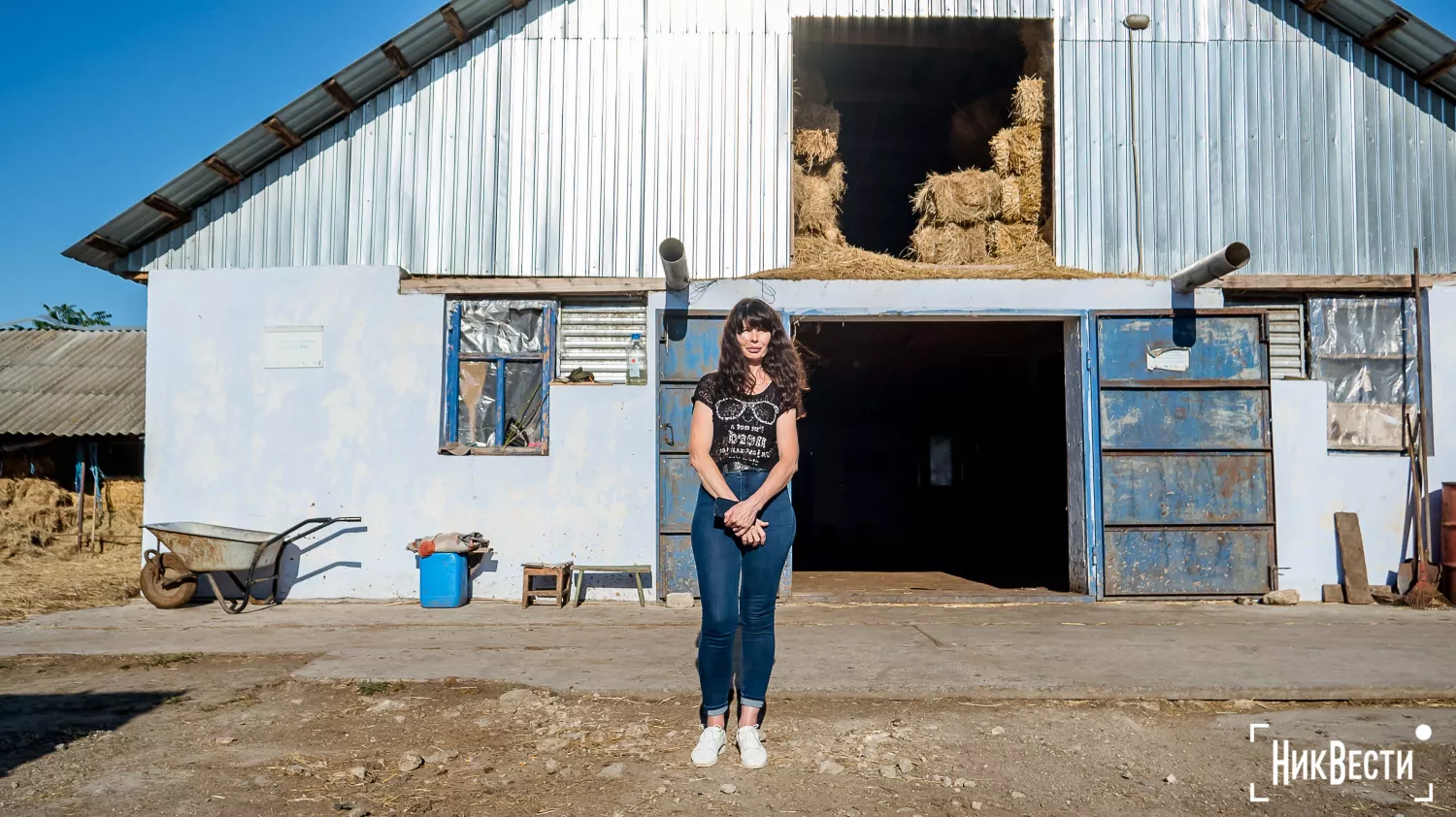 Liubov Khodarina tells how the idea of opening a dairy farm came about. Photo: Serhii Ovcharyshyn, NikVesti
Liubov Khodarina tells how the idea of opening a dairy farm came about. Photo: Serhii Ovcharyshyn, NikVestiActually, the idea to create their own farm arose in 2007, when a drought almost completely destroyed the harvest in the field of the Khodarin family, and the apiary, which was an additional source of income, did not bring enough profit. Liubov Khodarina recalls that it was not easy to start. Due to the small starting capital, the family took out loans. After purchasing several cows and arranging the first barn, the Khodarin family began to cooperate as a milk producer with the Lactalis plant.
«Just then, the manager of the company came to us and offered us a job — to collect milk from people and deliver it to the factory, together with ours. To meet the conditions for cooperation, we bought three more cows. So we worked for seven years. In 2014, the factory manager suggested that we improve the conditions for the cows, so we started to get more milk of higher quality,» Liubov recalls.
In 2015, the Khodarins' began expanding the farm. To build two barns and increase the herd of cows, the family took a loan, and thanks to the «Community Welfare» project, an automatic watering and milking system, air ventilation systems, lighting, climate control and rubber mats were installed on the farm:
«We never had start-up capital. These were loans. We gave a loan for the construction of a farm for three years, and a loan for livestock expansion for four. Until 2014, we spent about 27,000 dollars on the purchase of cows and 600,000 hryvnias on the construction of the farm,» says Liubov.
Liubov says that thanks to these changes, the farm began to bring in about a thousand dollars a month.
Before the full-scale invasion began, life on the farm was full of ambitious plans. Liubov and her husband dreamed of improving the fodder base, purchasing a mixer for proper mixing of fodder and a tractor for field work.
Thanks to cooperation with the EU and UNDP, they received planters, a cultivator and a forage harvester to work in the field. The plans included the development of green tourism on the farm with an emphasis on children's visits. Love wanted them to see animals up close and understand where milk comes from.
«The husband ordered to quickly untie the cows and run away»
When full-scale war broke out, the farm found itself on the brink of survival. Liubov Khodarina remembers that in the early days her husband left for the service, leaving her and her son alone. After their village was surrounded on March 10, 2022, a man called and advised them to untie the cows and run. Despite the danger, Liubov decided to stay and save the farm. At that time, they kept 42 cows.
The village was liberated on March 17, 2022, but it was still not easy.
For the first two months there was no electricity in the village. The farm, which is completely dependent on mechanized processes, was on the verge of collapse.
«We were able to survive only thanks to the generator we received through the «Community Welfare» project. It was costly in terms of fuel, but otherwise we simply wouldn't have been able to stand it,» admits Liubov.
During this period, the farmer was looking for ways not to lose milk — she fed it to her cattle and gave it to people uselessly. She felt lonely and helpless at home. When the situation improved and people returned to work, Liubov asked to pay at least 10 hryvnias per liter to pay for utilities. However, large families and pensioners continued to receive milk for free.
«While our men are at the front, we cannot cope with everything. Without them, it is almost impossible to do hard physical work,» she says.
Because of the shelling, the cows were very stressed, so they gave much less milk. Before the war, the farm produced 300 to 400 liters of milk every day, but now only 100.
The war and disruptions in the supply of raw materials led to serious problems for many local manufacturers. The Bashtanka cheese factory, one of the leading cheese producers in Ukraine, and the Lactalis factory, which specialized in the production of milk, cheese and yogurt, have suspended their work. These enterprises were the main buyers of milk for many farmers in the Mykolaiv region.
The Khodarin family, which supplied milk to the Lactalis plant for 14 years, found itself in a difficult situation. The closure of the factory forced them to look for new ways of selling milk. Now the family sells the produce in the market, to neighbors or middlemen, but at much lower prices.
«We have never worked with the Bashtan cheese factory, although there was such an opportunity. But since Lactalis was our regular customer, we worked with him. It was a stable and profitable deal,» remembers Liubov Khodarina.
Now the family is working with a new intermediary who supplies milk to the plant in Kryvyi Rih. However, the price of milk is low, which does not allow to cover the costs of maintaining the farm.
«I cannot say the exact price, but we are paid an average of 8-9 hryvnias per liter of milk. We would like to receive at least 15 hryvnias,» adds Liubov.
She also notes that they have not yet managed to return to pre-war sales volumes.
«Our mediator is trying, but the situation is still difficult,» she says.
Keeping a cow today is not worthwhile
Because of the war, Liubov Khodarina's farm was halved: now she has 25 cows instead of 50. The main problem is the lack of fodder. To feed the animals, she needs five thousand bales of straw and hay, as well as forty tons of grain.
«We were forced to reduce the herd because we could not prepare enough fodder. Now we have 9 hectares of meadow hay and 2 hectares of alfalfa, the rest we compensate with straw, although I understand that this will affect the amount of milk in the winter. «We used to mow our alfalfa four times a year, and this year we were able to do it only once,» shares Liubov.
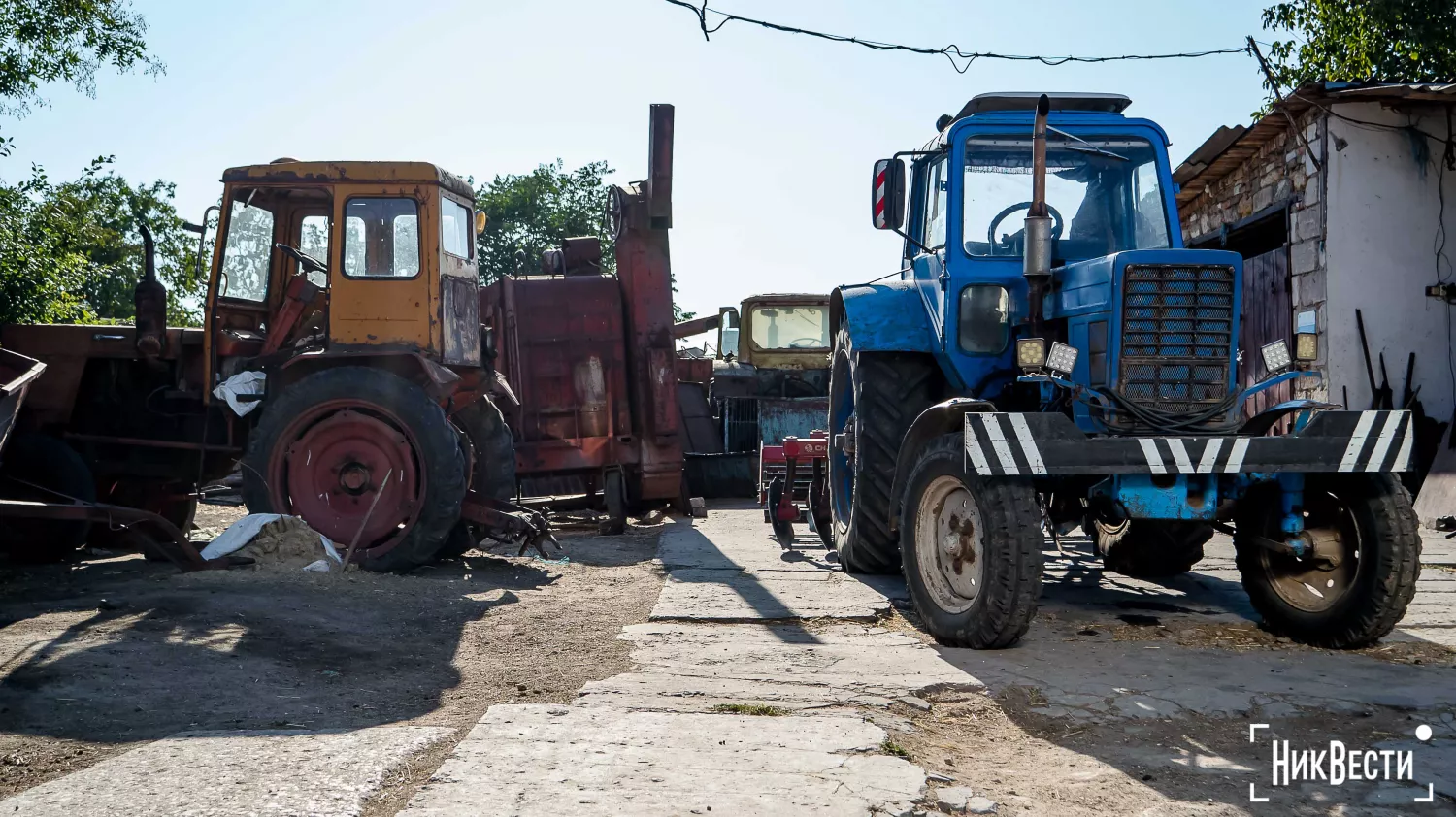 The machinery used by farmers to cultivate alfalfa and hay fields. Photo: Serhii Ovcharyshyn, NikVesti
The machinery used by farmers to cultivate alfalfa and hay fields. Photo: Serhii Ovcharyshyn, NikVestiIn addition, because of the abnormal heat and lack of rain, they already began to use the hay reserves that were supposed to be used in the winter. In the last days of August, 20 hectares of straw burned on their field.
«I'm just scratching my head and thinking where to find another two and a half thousand bales to feed the cows in the winter,» Liubov says desperately.
If there is no more feed, the farmer will be forced to give at least four cows to slaughter:
«We simply will not be able to keep them. And keeping a hungry animal is a crime. Either you feed her and have her, or you make fun of her,» says Liubov.
The war brought with it other challenges. Liubov Khodarina says that the state not only does not support farmers, but also complicates their situation by demanding milk tests. The financial burden on the farm is high — veterinary services cost about 2.5 thousand hryvnias per month. Previously, when working with Lactalis, they did all the necessary checks, but in the current environment, when farmers work through a supplier, this is no longer necessary.
«We counted on at least support from the state, but we practically don't have that either. Hope only in yourself. «Today, no one is interested in what and how we survive and keep our cows,» says the farmer.
Before the war, Khodarina planned to hire three workers, but now she cannot do it. In addition, the debt for the tractor must be paid.
Liubov believes that now people do not want to work with cows, because they believe that it is difficult and unpromising.
«The motivation to work on the farm is gradually fading, and it is becoming more and more noticeable. Young people do not see any prospects in this business and watch how farmers invest their efforts without any visible result,» says Liubov.
According to Khodarina, her children talk about the fact that it makes no sense to spend health on keeping cows if it does not bring money. She says that even for food and treatment there is a lack of funds:
«Our work not only does not bring profit, but leads to losses.»
She is worried about the future because right now their farm is running at capacity and they are very close to closing.
«We are working to the last breath. We put all our strength and health into work, but as a result we get only exhaustion and disappointment,» says Liubov.
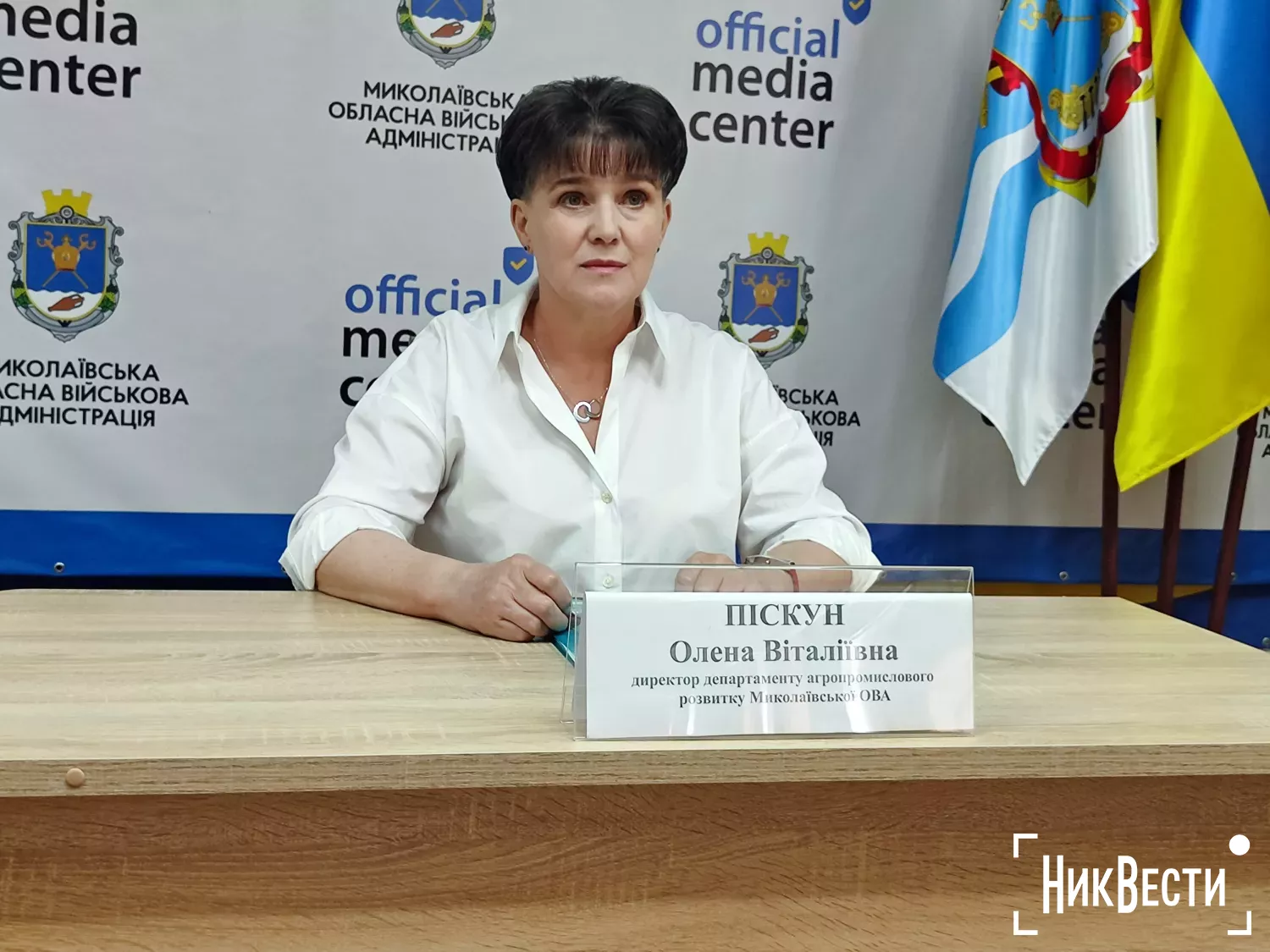 Olena Piskun, director of the Department of Agro-Industrial Development of the Mykolaiv Regional Military Administration. Photo: NikVesti
Olena Piskun, director of the Department of Agro-Industrial Development of the Mykolaiv Regional Military Administration. Photo: NikVestiIs it possible to get grants?
Olena Piskun, Director of the Department of Agro-Industrial Development of the Mykolaiv Regional Military Administration, declares the gradual restoration of the livestock industry in the region:
«Although the region has traditionally had problems with animal husbandry due to a lack of pastures and frequent droughts, recently the volume of production and the number of livestock and poultry have increased significantly both on farms and in private ones.»
Olena Piskun explains that farmers could receive funds from the state this year. Owners of 3 to 100 cows were given a subsidy of 7,000 hryvnias for each cow. However, not all applicants were able to receive assistance due to difficulties with registration on the website of the State Agrarian Register.
The Khodarin family also applied for a subsidy. Liubov says that the process of submitting applications through the State Agrarian Register has turned into a real test:
«We thought that from May 1 to June 30 we would be able to submit an application at a time convenient for us. But it wasn't like that. It turned out that applications were accepted for only three days, and only 19% of those who were eligible for the subsidy were able to submit their applications on time. We literally had to sit at the computer for whole days trying to register. And you still have to milk the cows and prepare fodder!»
The farmer also noted that in 2021 it was much easier to get a subsidy — it was enough to physically bring copies of the necessary documents.
The Khodarins are still awaiting a decision on their application. They will be able to spend this money only on the things indicated in the application, such as the purchase of feed or electricity.
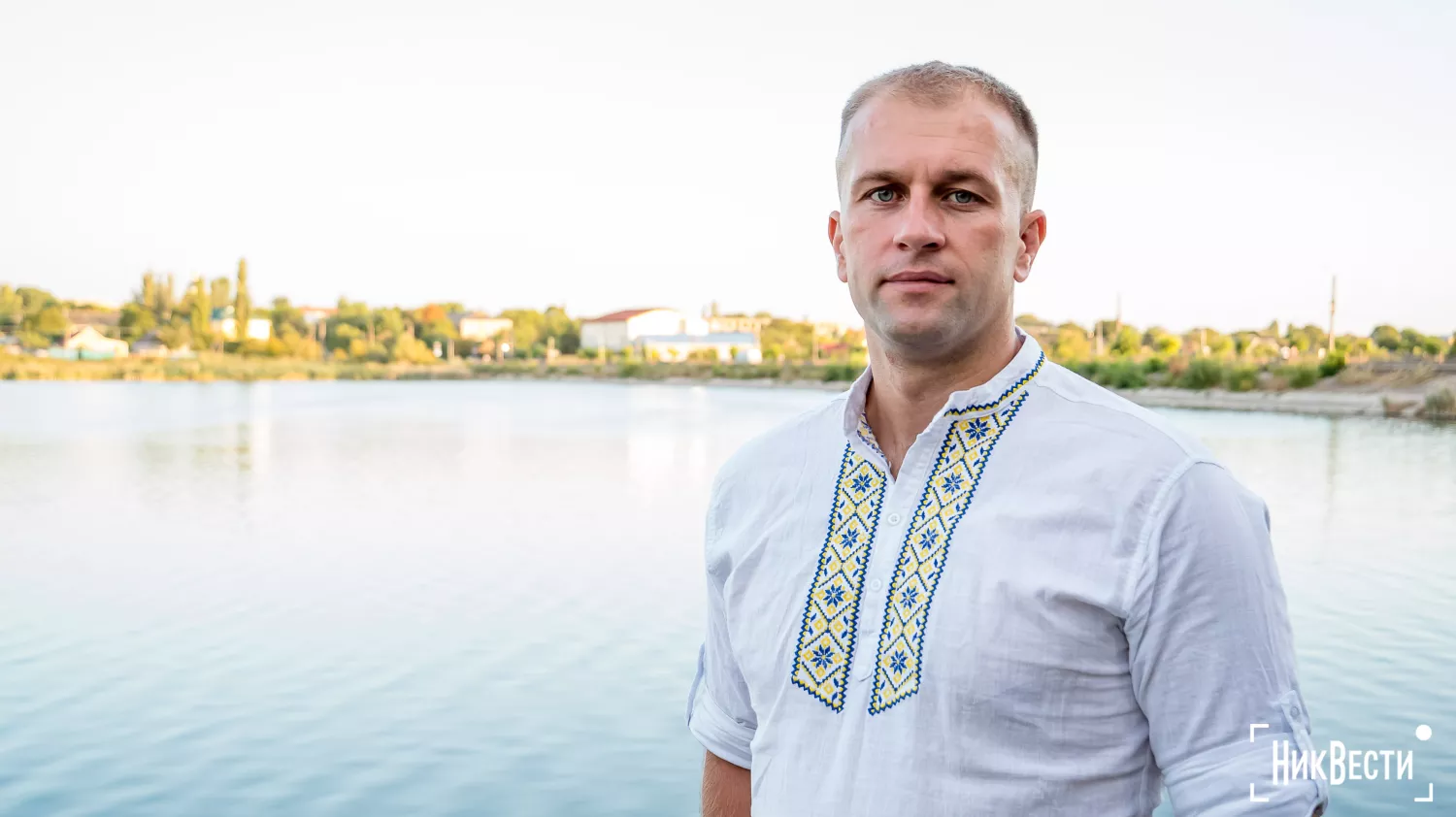 Project manager Serhii Lasitsyn, who helped the Khodarin family with grant programs. Photo: Serhii Ovcharyshyn NikVesti
Project manager Serhii Lasitsyn, who helped the Khodarin family with grant programs. Photo: Serhii Ovcharyshyn NikVestiProject manager Serhii Lasitsyn, who helped the Khodarin family with grant programs, notices that more and more farmers are abandoning livestock farming. He has been observing this trend since 2015. The main reason, in his opinion, is the unfair conditions of cooperation with the state.
He believes that the state should cover the costs of milk analysis so that farmers can easily invite specialists to conduct such studies. He also emphasizes that the procedure for receiving subsidies should be simplified.
In his opinion, feed centers in partnership with local authorities and farmers would also help. Despite all the difficulties brought by the war, Liubov continues to dream of reviving the farm and realizing his former plans. But still one wonders if they can ever get back to what they had before.
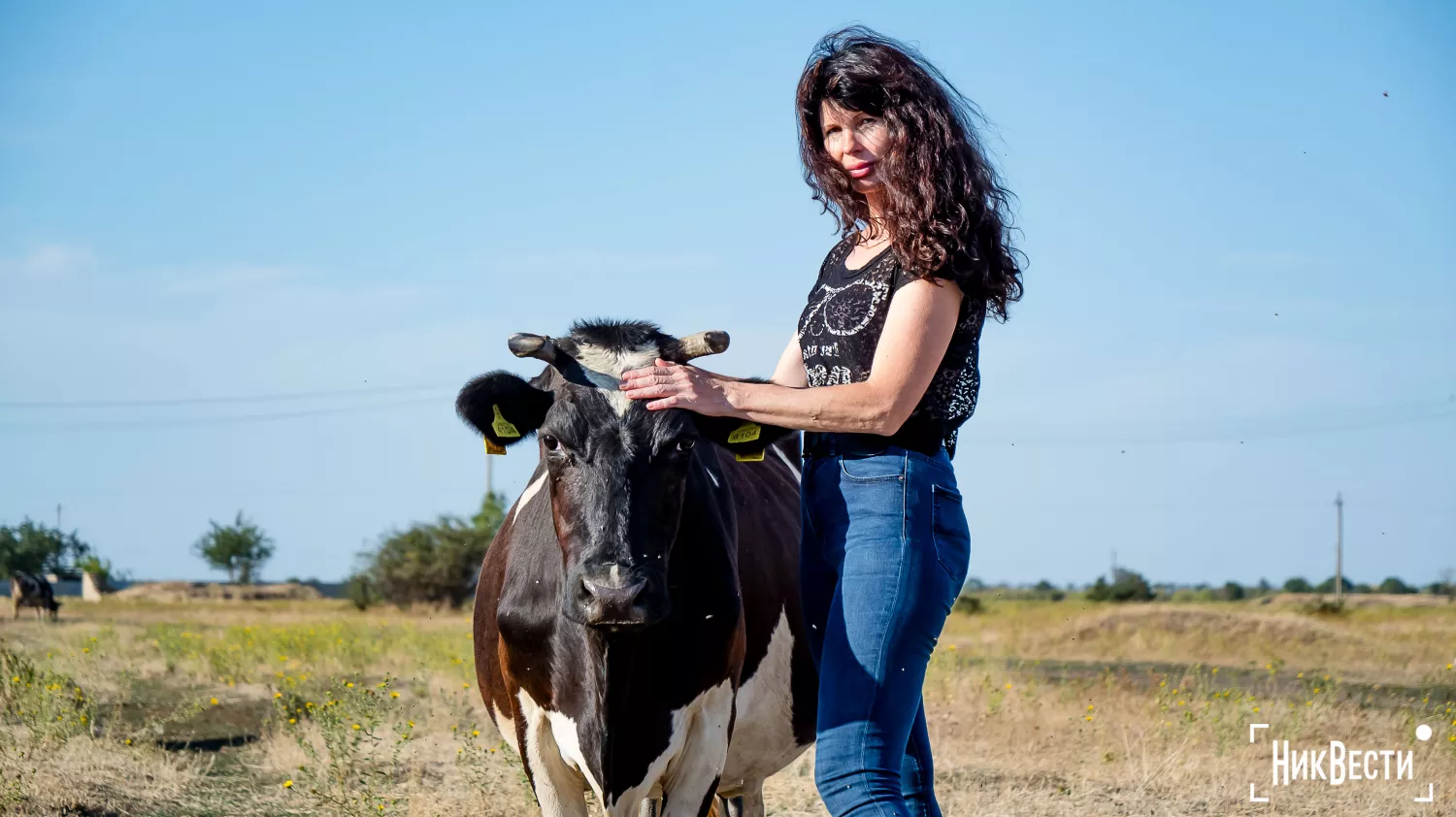 Liubov Khodarina is the owner of a farm in the village of Lotskyne. Photo: Serhii Ovcharyshyn, NikVesti
Liubov Khodarina is the owner of a farm in the village of Lotskyne. Photo: Serhii Ovcharyshyn, NikVestiAlina Kvitko, NikVesti
Photo: Serhii Ovcharyshyn
We created this material as a member of the Recovery Window Network. Learn everything about the restoration of the affected regions of Ukraine on the single recovery.win platform.
